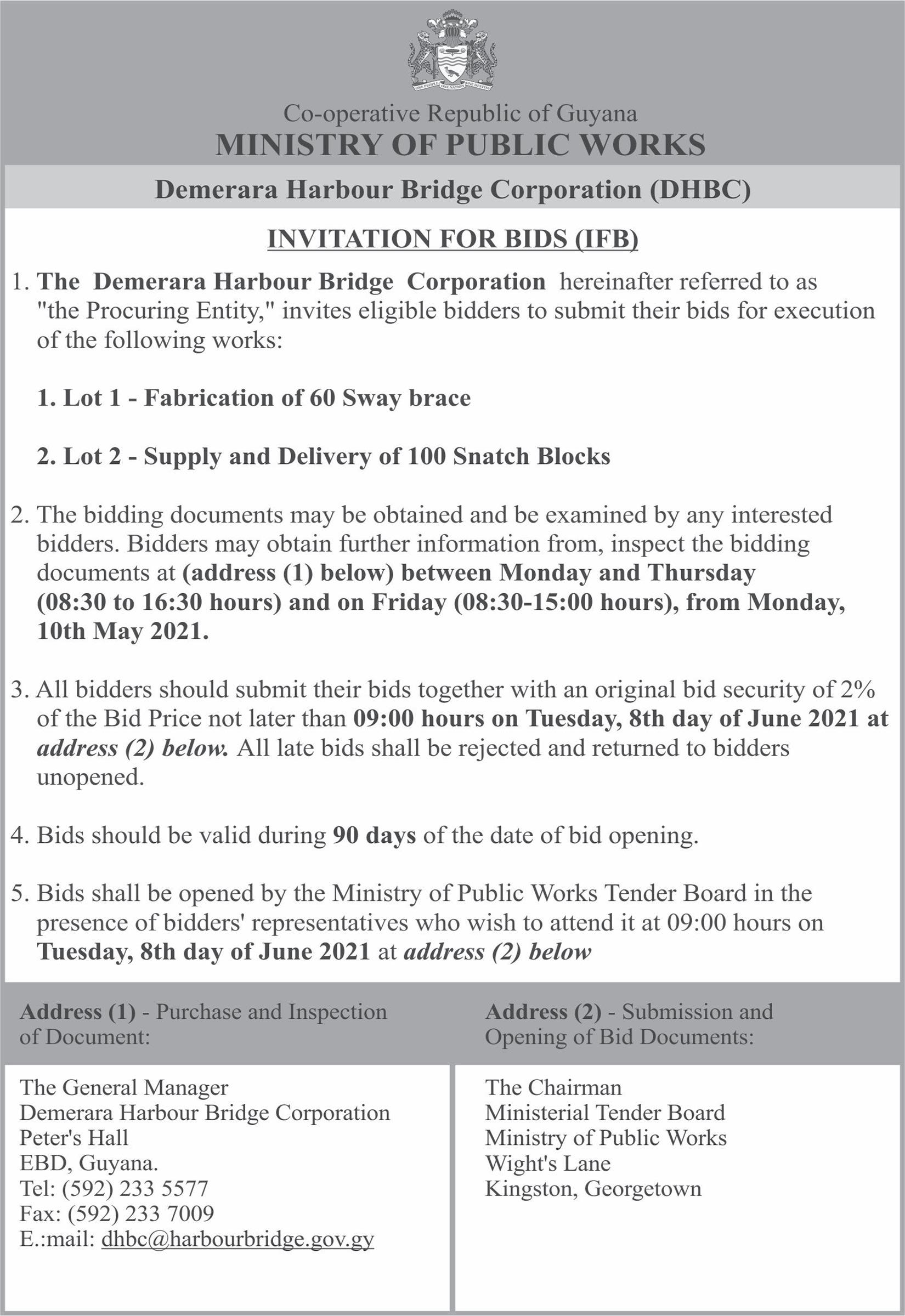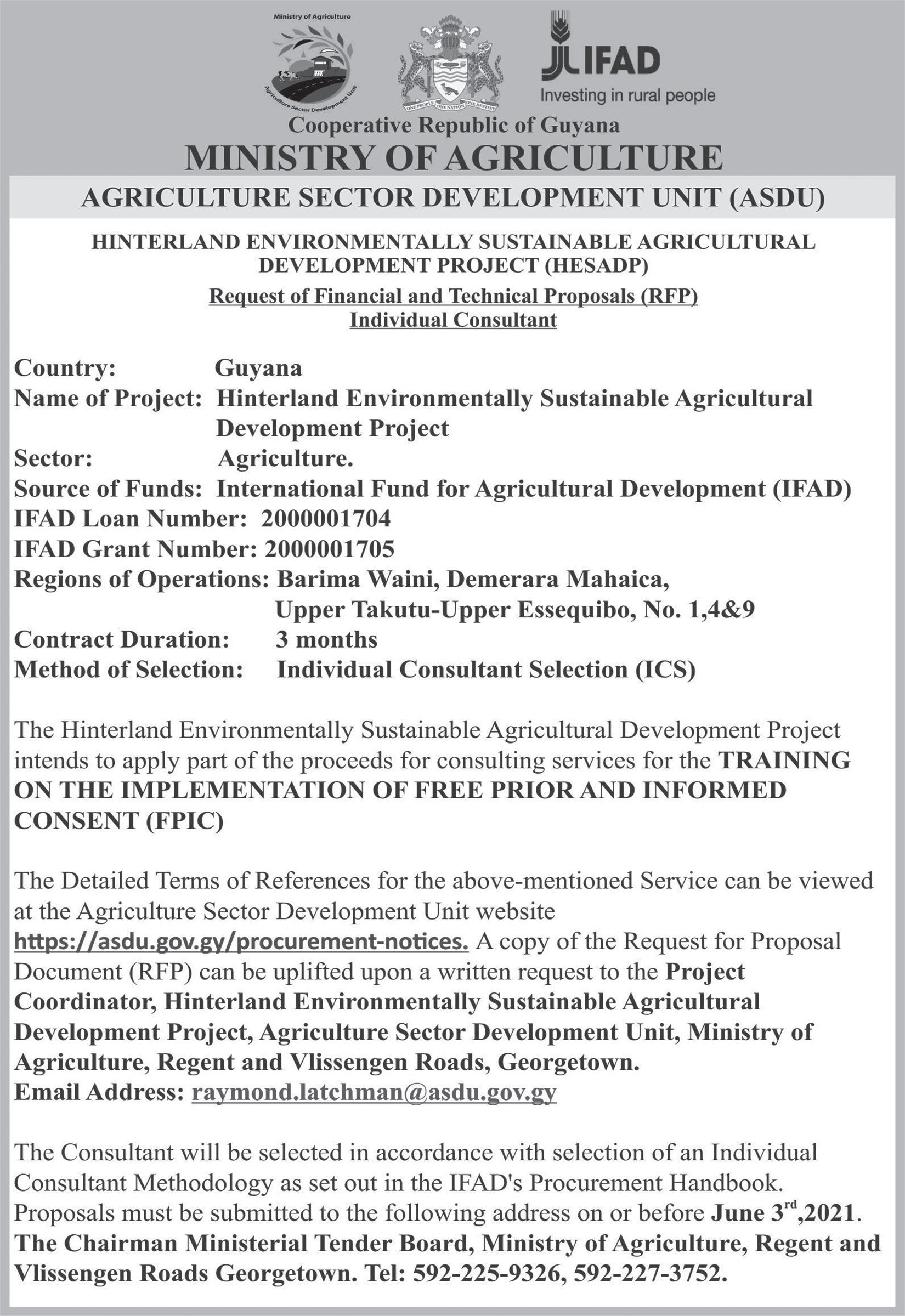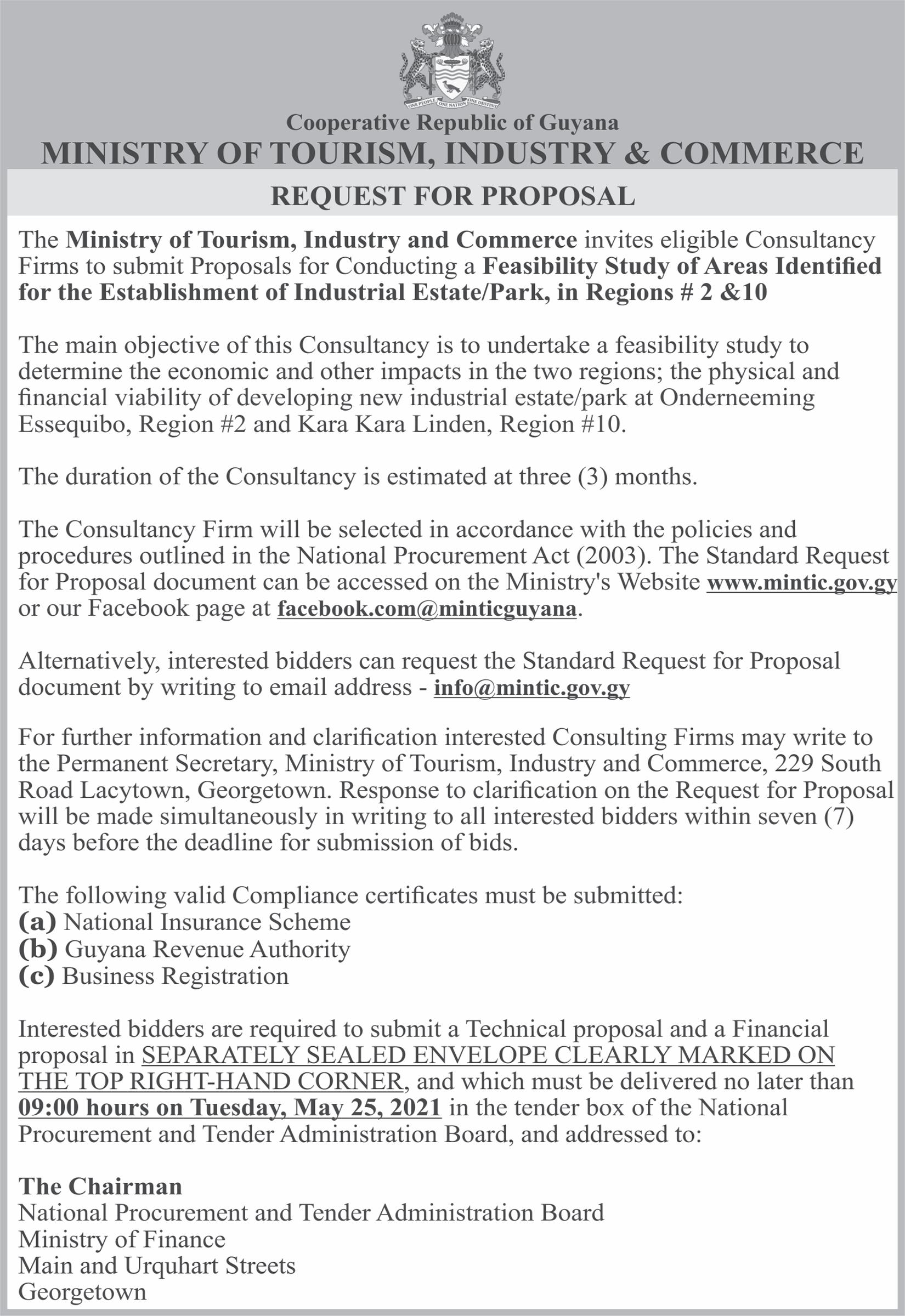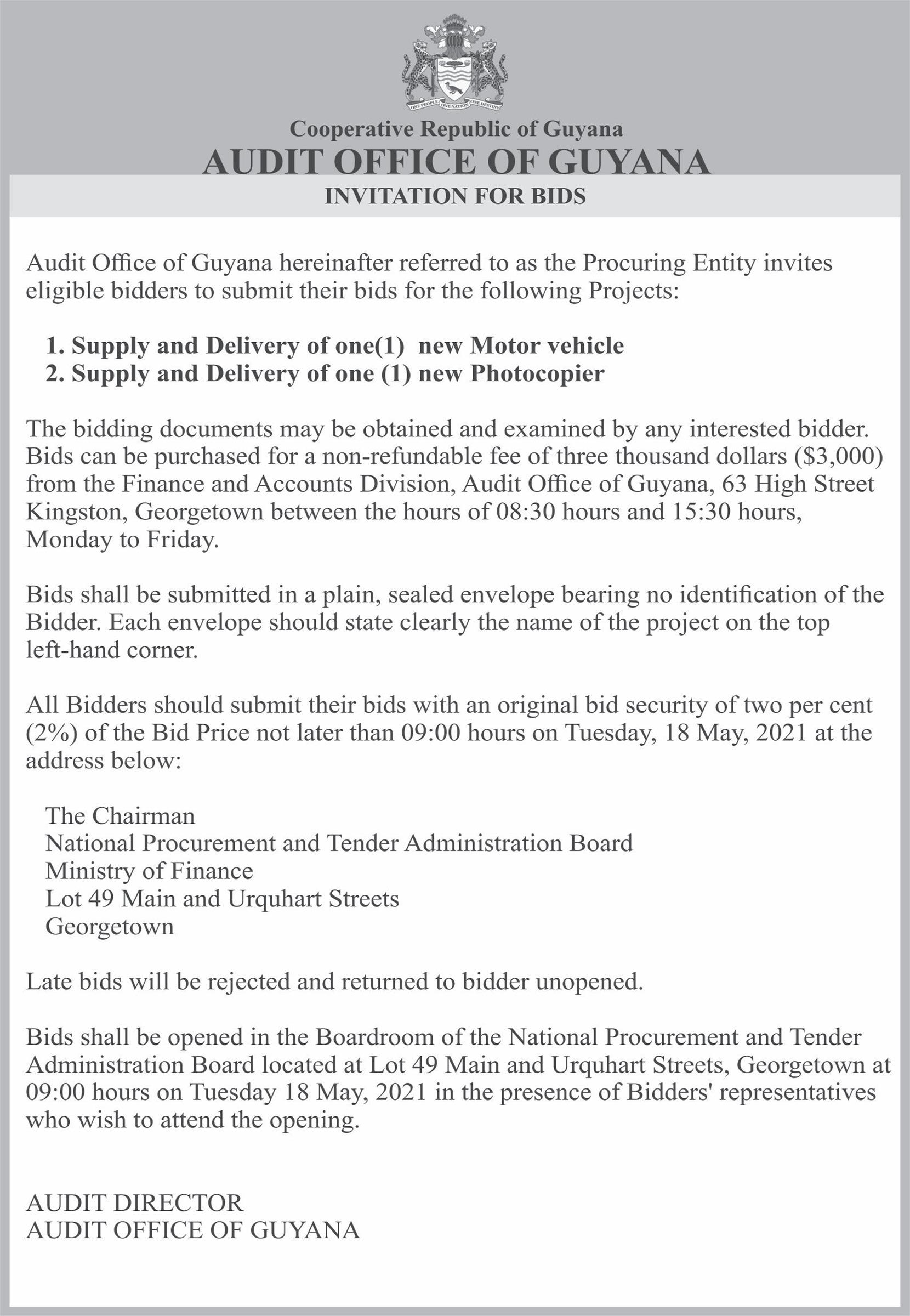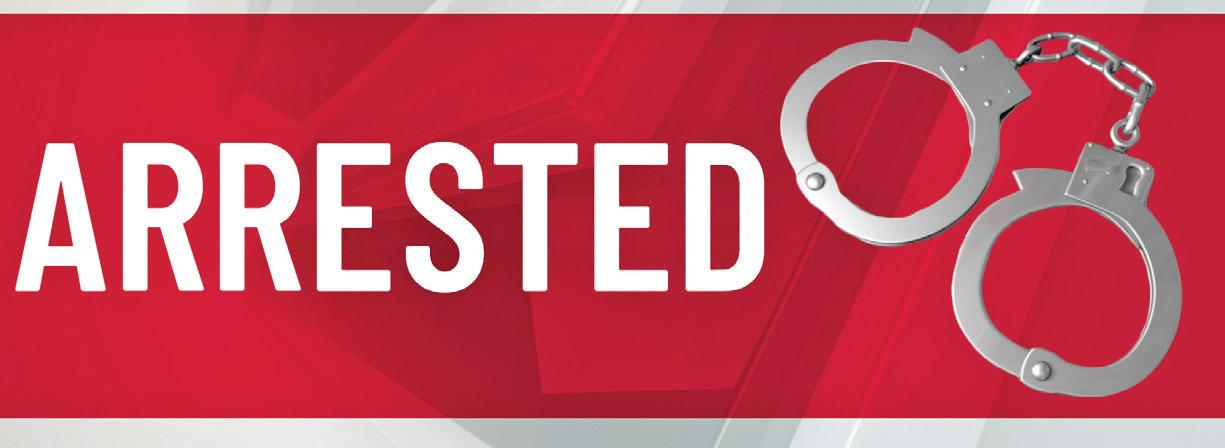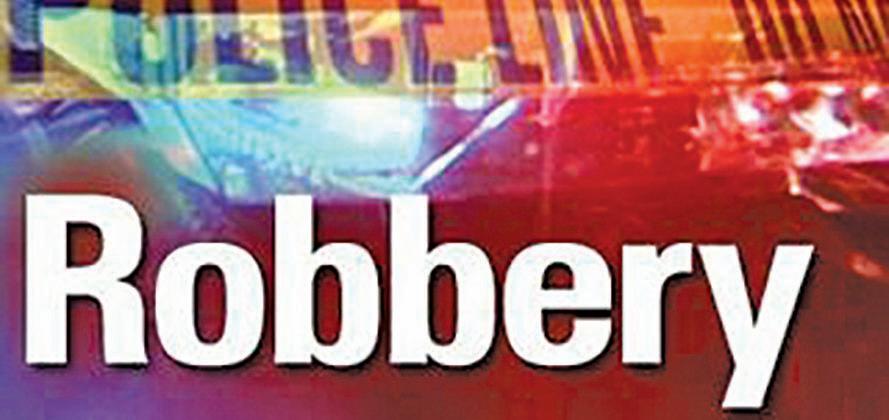
36 minute read
The lessons P
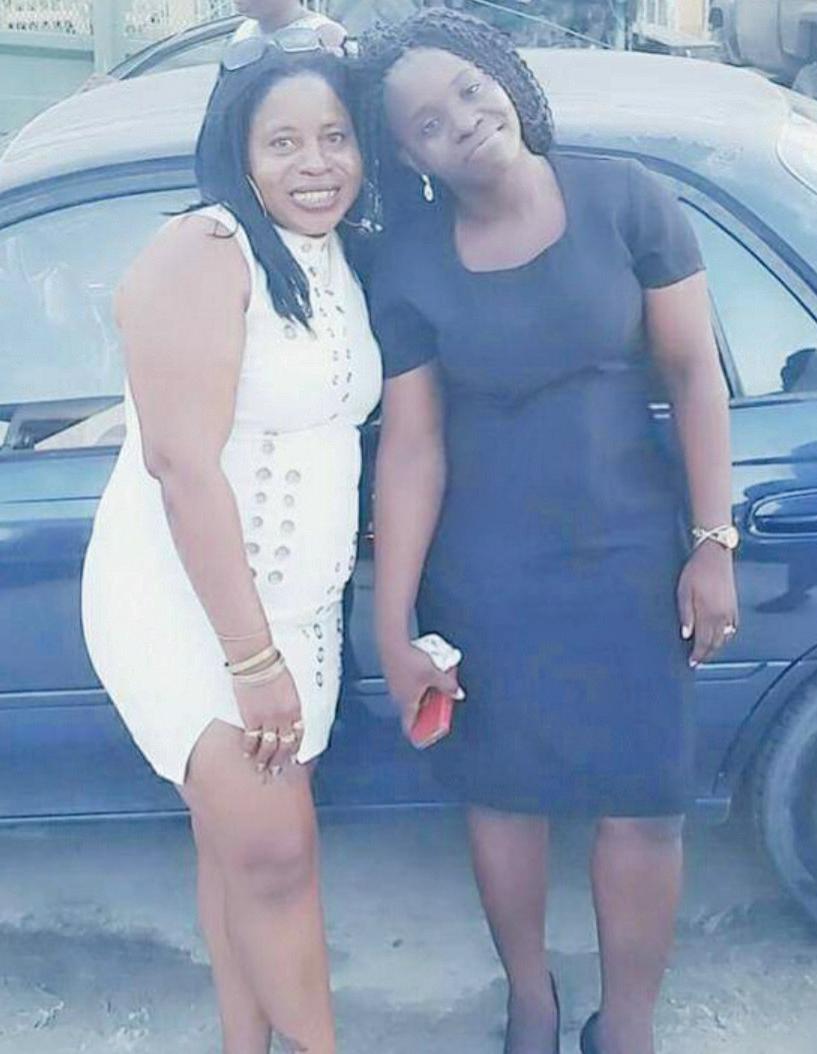
SUNDAY, MAY 9, 2021 | GUYANATIMESGY.COM The lessons from my mother shaped my mothering style – Keisha Vincent
By Lakhram Bhagirat
The world is celebrating Mother’s Day today by honouring mothers and their contribution to the development of their children. That is being done in different ways and for Keisha Vincent, there is no better way to honour her mother than imparting the lessons she learnt to her children. Vincent, by using the lessons taught by her mother, is honouring her daily and according to her, those lessons have shaped her style of parenting. The mother of three was born in Kamarang,
Region Seven (Cuyuni-Mazaruni) to an extremely large family. She has seven siblings and is the fifth child of her parents.
“I grew up with my mom and seven other siblings. My mom, despite the various challenges our family faced kept us all together. Growing up in a large family has several positive impacts in my life, from learning to share to being taught the importance of responsibility and honesty,” she said.
Being from a hinterland village allowed Vincent to enjoy the simple things in life. Her childhood involved all sorts of exciting games with her sibling. Their mother always ensured that they got along since they “were plenty and don’t need to go out and find people to play with.”
Her mother was the pillar of strength in her life. Vincent remembered her mother working really hard to ensure that she and her siblings had a relatively easy time growing up. There were big pots of cook-up rice and unfiltered conversations about life. The channel of communication was clear so that Vincent and her siblings understood some of the challenges that awaited them when they entered the world.
“One of my fondest memory of my mom is her staying up late with me while I was preparing to write Common Entrance Exam with a ‘flambo’ lit for illumination. On the day of the exam, she dressed me up with the whitest of all the socks, ribbon fitted neatly and uniform neatly pressed to the seam. I was extremely nervous because I really wanted to make my parents and siblings proud. On the day of the exam, despite the fact that she worked the night before, my mom walked me to school and as I entered the compound looked me in the eye and comfortingly said to me ‘go do your best, I know you will do well.’ Those comforting words as simple as they may seem calmed my nerves instantly. I went into the exam room that day filled with confidence. I was able to score the highest mark of the class that year,” Vincent remembered.
Now a mother herself to three children – Keiana, Florynell and Floyd – Vincent is ensuring that her children experience the same level of support as she and her siblings did.
The 33-year-old became a mother for the first time when she was just 19.
“Becoming a mom for the first time had a series of emotions and feelings attached to it. When I saw my baby for the first time it was love at first sight. My life at that moment, when I held her in my arms, became about her. I knew at that moment that every decision I make would affect her. I pledged to be the best mom I could to that baby on the 16th of December, 2006. I basically went from worrying about myself, thinking about myself, planning for myself to planning for this little person who needed me for everything,” the mother said.
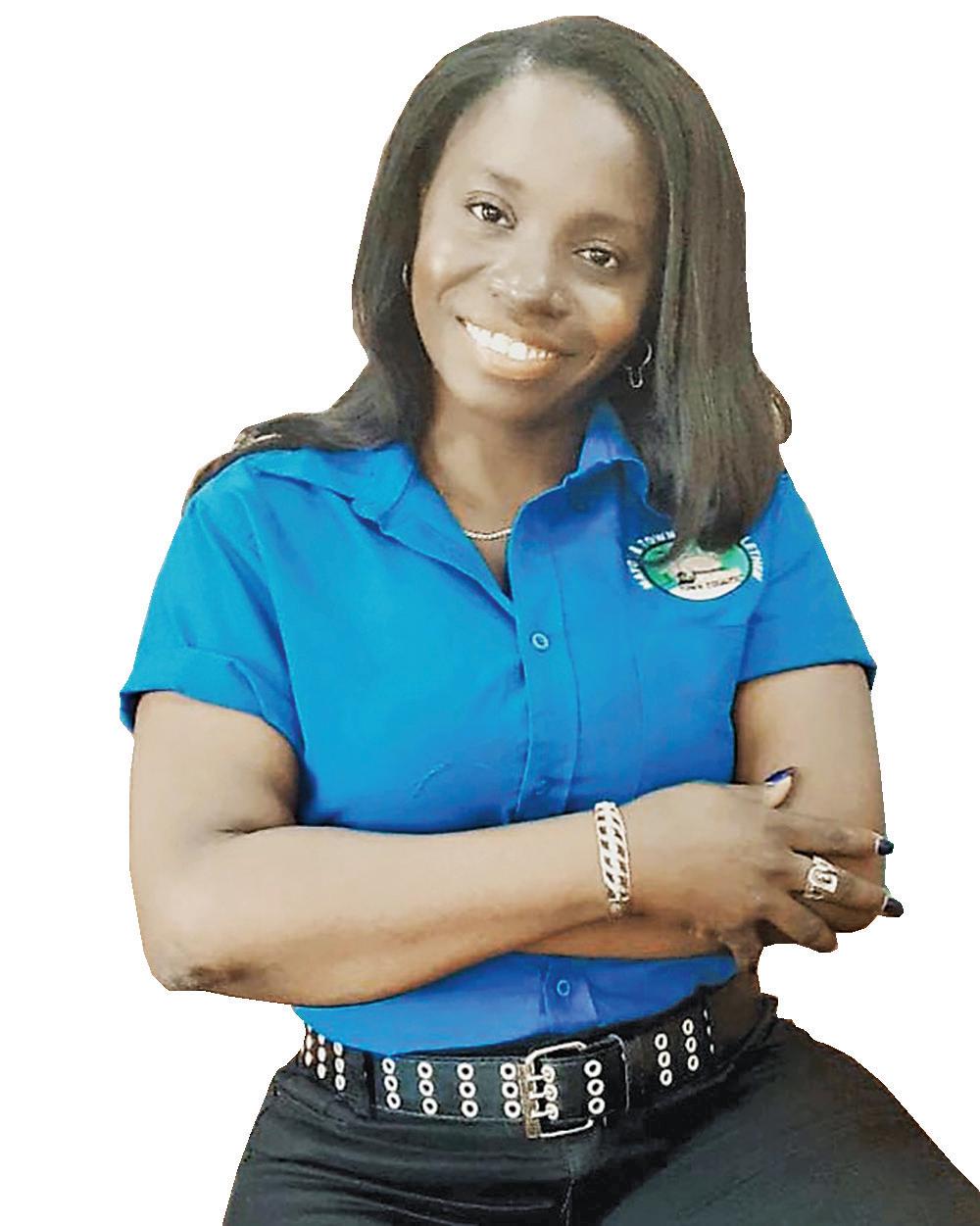
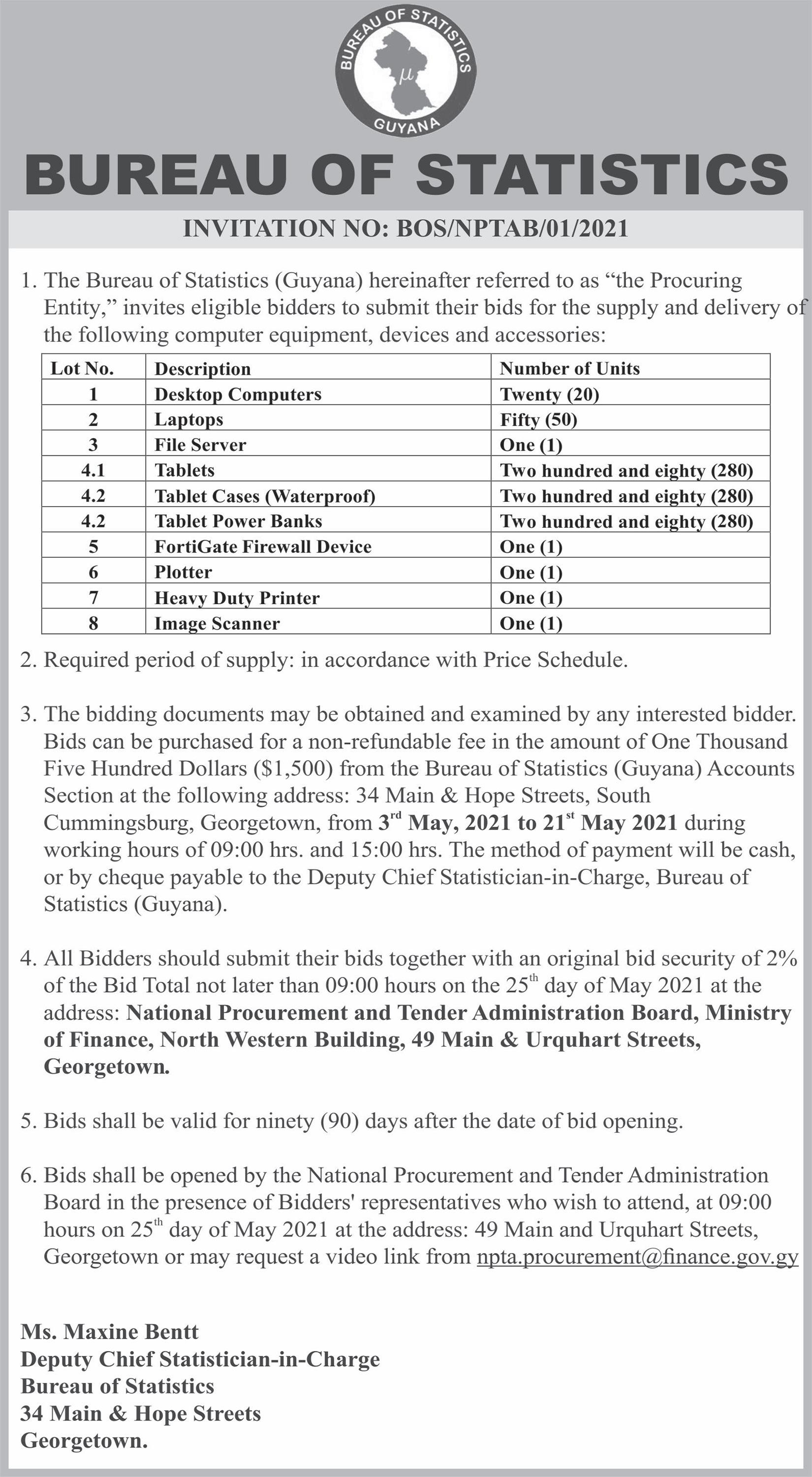
TURN TO PAGE 24
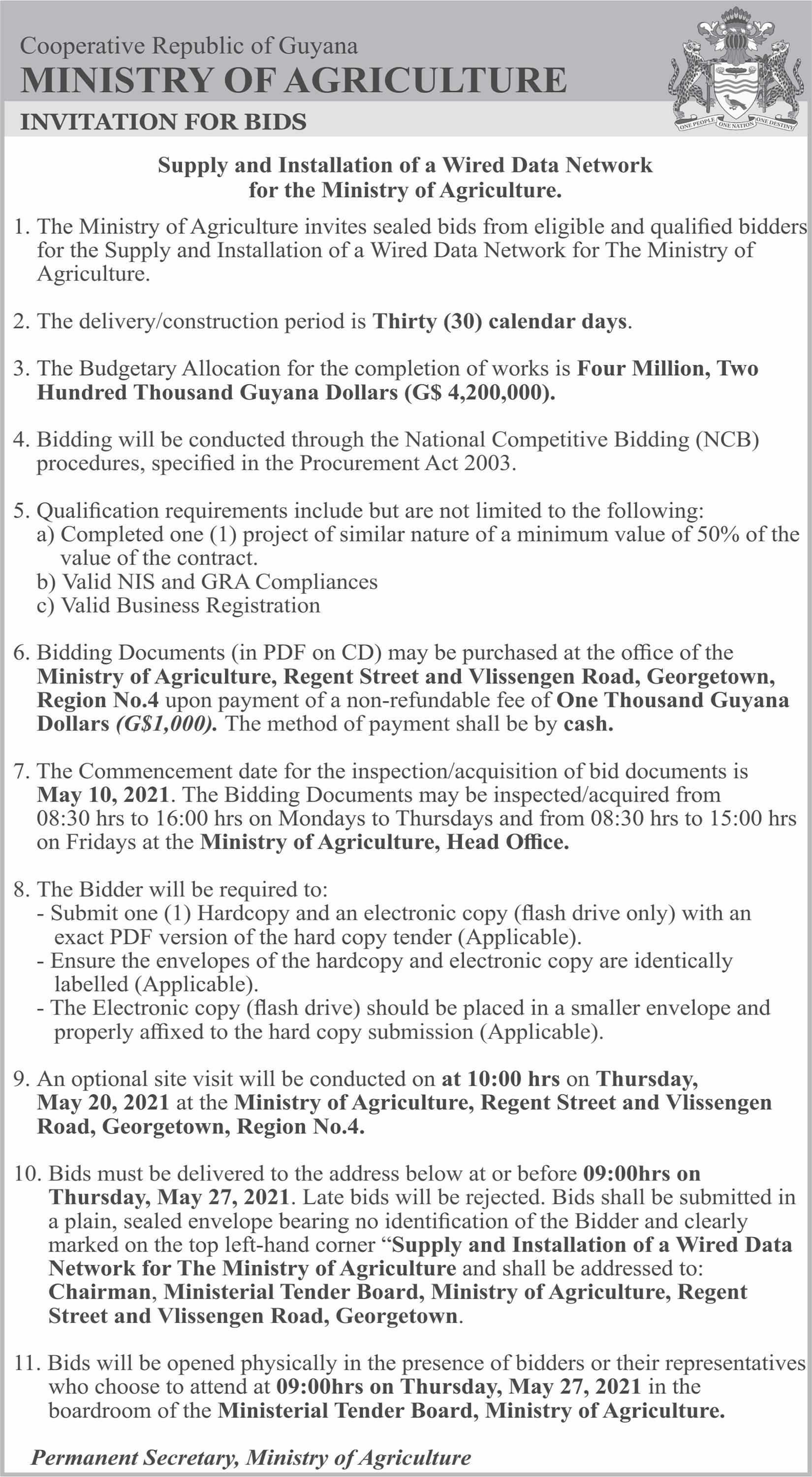

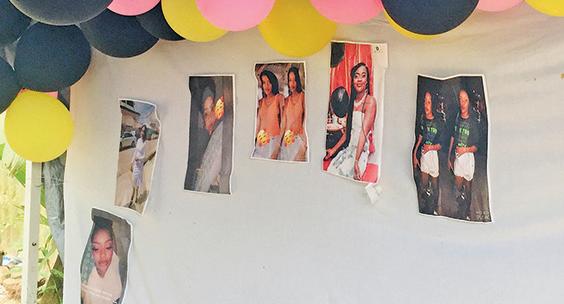
The tent erected in memory of Shonette
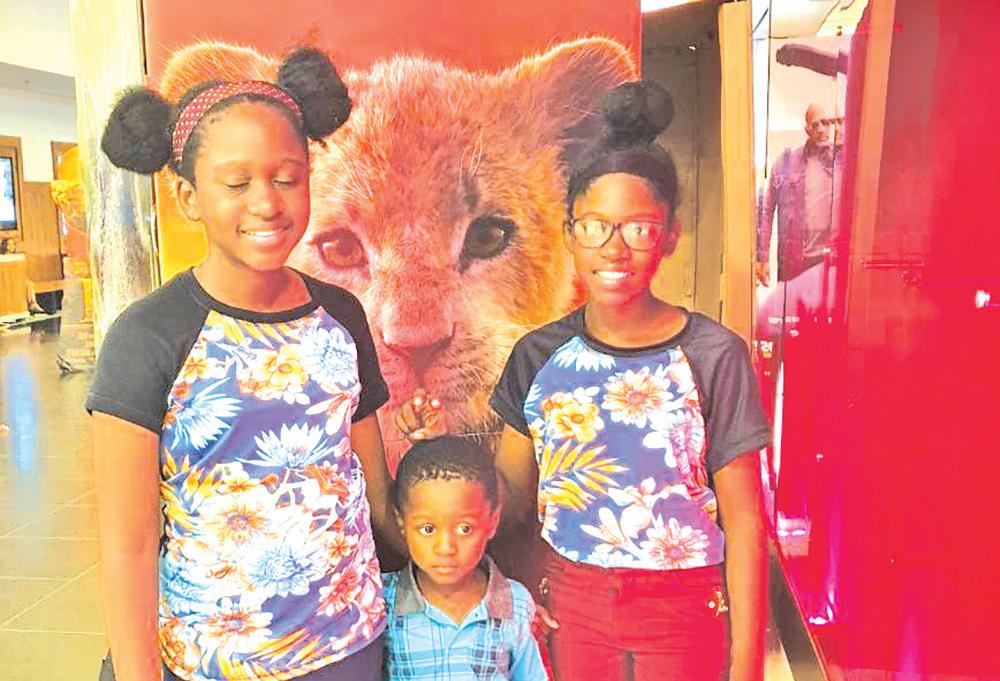
Benjamin said she takes comfort, however, in knowing that they were able to retrieve her daughter’s body.
“I just want to remember her just the way she used to be. I don’t want to remember her dead...I know I’m going to feel sad on Mother’s Day,” she reiterated.
Benjamin urged Alleyne to surrender to Police so that her daughter can get justice. She also encouraged mothers to pay more attention to their daughters and the men they are involved in relationships with.
“This is a warning to every mother. If your child got somebody, let them come and ensure you counsel the person. Get to know the person for yourself... You can even take them to a pastor for a lot of counselling. As they say, ‘come see me and come live with me, it’s two different things’,” she noted.
The grieving mother said she is also taking comfort in the fact that her teen daughter is still alive and was able to reveal what happened on the fateful day.
“It’s hard but we just have to leave it in the hands of God,” she said.
Meanwhile, Dover’s cousin related that the family is unappreciative of the negative way in which her teen cousin is being portrayed by some sections of society. She said no one truly knows the situation, but she is happy that the teen reacted the way she did and is alive today.
“The only reason she was there (with her sister and boyfriend) was because she had to get help from her sister with her SBAs. She’s not the type of person people are saying, she’s very quiet and she is very smart,” the cousin said.
She said the teen has been through a lot already as it relates to the case.
“And as much as people are saying that she took a long time to talk, the family was looking outside... because we were misled. So, that is why most of us did not even find out from her. While we were busy outside looking, she was crying and trying to deal with
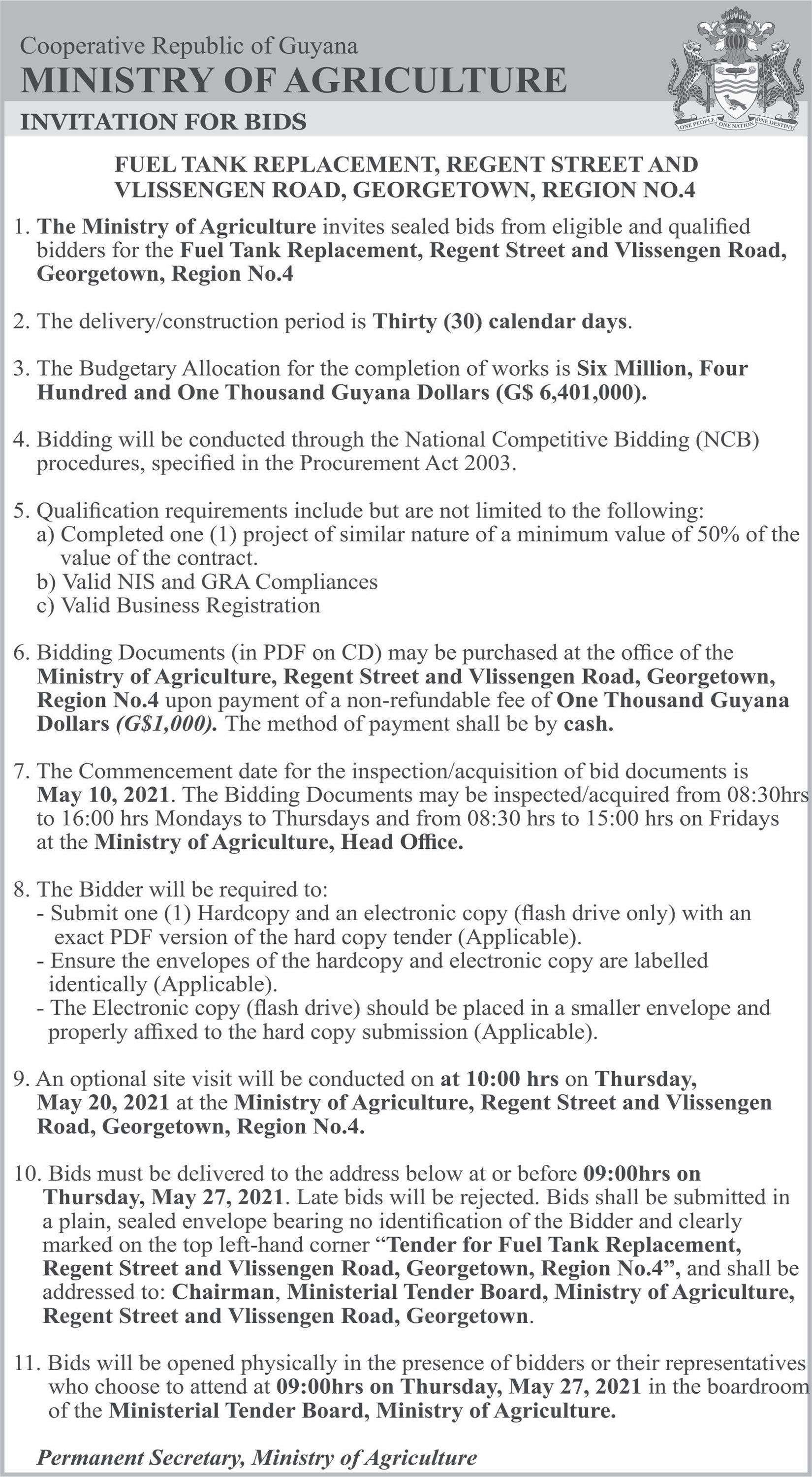
FROM PAGE 22
the situation but she’s not an outspoken person. I don’t want the public to be spreading stupid rumours about her because she’s not that sort of individual,” the cousin said.
Additionally, Dover’s brother, Travis Stanley, said she had a very promising future as he described her as very loving and humble.
“I was away from them for 10 years, so I never really played that big brother role in their life... but since Shonette was small I saw a promise in her like she would’ve made the family better,” he said.
He also described his teen sister as the “brightest in the family” but noted that she was fearful and traumatised as a result of the entire ordeal.
“It was very promising with both she and Shonette. Well, Shonette got big so I was looking to her now. I pray that people will be able to put themselves in her shoes... at the end of the day, she’s a child...It ain’t easy, so people can say what they want to say but that girl has been traumatised with a fear when she see what her sister went through. I’m just pleading with the public to get a heart... to put their foot in her shoes and see what she went through,” he said as he related that he is praying for the family and for justice.
“We ain’t taking no revenge. We come from a peaceful family. We’re full of love and Shonette was very loving. We leaving everything to God. I’m going to miss my sister. She’s going to be greatly missed,” Dover’s brother said. The lessons from my mother... FROM PAGE 23
Keisha’s three children - Keiana, Florynell and Floyd
For Vincent, being a mom means raising her kids to be self-sufficient and good responsible individuals. She believes that it is her responsibility to ensure that her children are the better version of herself.
“One of the best part of being a mom, you can have a really bad day and then you come home and awaiting you is the loving arms of an amazing six-year-old or a smirking sarcastic fourteen-year-old who still comes to me for her forehead kisses then there is the teddy bear hugs from my ‘Bella’.”
Vincent works with the Municipality of Lethem as its Town Clerk, which is a very taxing post. She finds balancing motherhood and work to be a challenge but with her children, it is easier. She sets routines for them and ensures they are followed.
“Most of what I’ve learnt or been taught by my mother in terms of the morals we see are not so prevalent among this generation, so I incorporate some of the teachings of my mom in bringing up my children. For example, she would always say never rob a child of their childhood, allow them to experience their childhood to the fullest and education is the key and that being humble is one of the greatest attitudes you can exhibit.”
She advised mothers to make wise decisions when it comes to their time and love their children wholeheartedly.
“Be a role model for your children. Love yourself and be confident always remembering that time and love has no substitutes.”
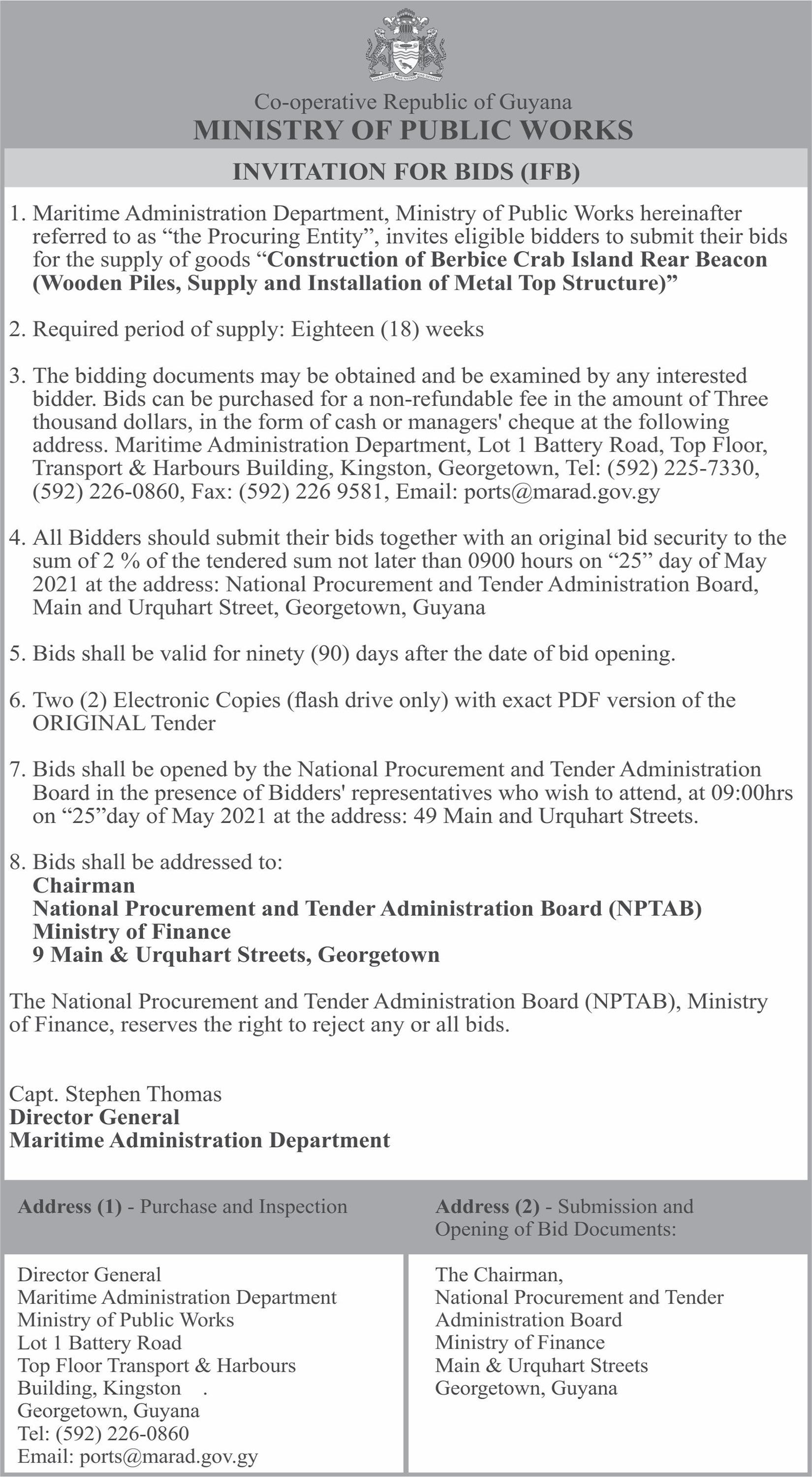
The “Pet Care” column, as the name suggests, involves itself in all those areas which impact on the health and well-being of our companion animals. Inbreeding/ Incest relative to animals, unless it is carried out under strict supervision and involving much scientific approaches, usually would result in deleterious effects on the future offspring and generations. I suppose that it is for this reason that all religious tomes and beliefs shun any practice of close relatives mating and producing progeny which usually exhibit serious defects and ailments.
We will therefore today commence with a whole new chapter in our discussions on the well-being of our companion animals, as it relates to breeding.
Sex and reproduction in our dogs and cats (the pets people mostly keep) would have been manipulated since the day man decided that he wanted to promote specific traits in the animals he had desired to share his home with. This manipulation of the reproduction system in order to derive specific characteristics in the offspring is a simple definition of breeding.
The wild ancestors of dogs lived their
BREEDING AND INBREEDING

social lives in packs. Humankind took these animals and made them into beings which share our households, and which cannot even greet and get along well with other members of their species anymore. This is especially true if a dog lives in a house with friendly humans and is isolated from members of his species. Some dog owners argue forcefully that their dogs actually believe that they are humans. It is not a seldom occurrence that dogs firmly attach themselves to their owners and form less lasting bonds with other dogs.
Breeders have been able to rearrange the reproductive system in such a way that dogs reach the age of puberty and maturity very early in life (less than a year in most cases). We have selectively bred dogs to be small (e.g., the Chihuahua) or large (the St. Bernard, Great Dane, and Irish Wolfhound), to be guard dogs, hunting dogs or lap dogs. We have bred them to have “smashed-in” faces (e.g., Pekinese) or long jaws (e.g., the Doberman).
Be that as it may, if you must get into the business of breeding, you should not do so willy-nilly. Breeding is a serious business, and you must be quite sure in your own minds what it is that you wish to achieve. If it is a pure breed you want, then you must start with a pure breed stud dog and bitch. Anything else is a mixed breed (a mongrel). So often we see advertisements that state the seller has pure breed German Shepherd/ Doberman dogs for sale. Well, once two different breeds are involved in the mating exercise, then the offspring would be nothing else than mixed breeds.
The object of any breeding programme is to preserve the essential qualities and physical attributes of that specific breed. Consequently, a thorough understanding of the breed standard is a fundamental requirement. But I will hasten to add that, beyond the knowledge of breed standards, there is a little something extra, an elusive special sense (almost an extrasensory perception) which allows some good breeders to have an unerring eye which allows them to have one breeding success after another. This is especially true in breeding racehorses. Generally speaking, however, genuine breeder must work diligently to acquire – over years of trial and error – the proficiency of a true breeder of dogs. Breeders have to research the animals’ bloodlines (the heritage or pedigree), and they be knowledgeable about the required standards of the breed. Breeders should visit kennels several times to carefully select the required breeding stock, and so on.
It is always advisable to take along a tested and proven breeder when going to select your base stock. It would not harm to ask your vet to accompany you. Also, one should have the good sense to breed the ‘whole’ dog and not put emphasis on any one single attribute. It makes no sense to choose a dog which has a beautiful face (according to the breed standard), but which has awfully skinny legs and a hunched back. Also, it may be good to keep in mind that two beautiful dogs must not necessarily produce a show-winning offspring. Genetics works in mysterious ways. It is not a singular occurrence for a “carthorse” to win great races on the track.
We shall continue with this interesting theme next week.
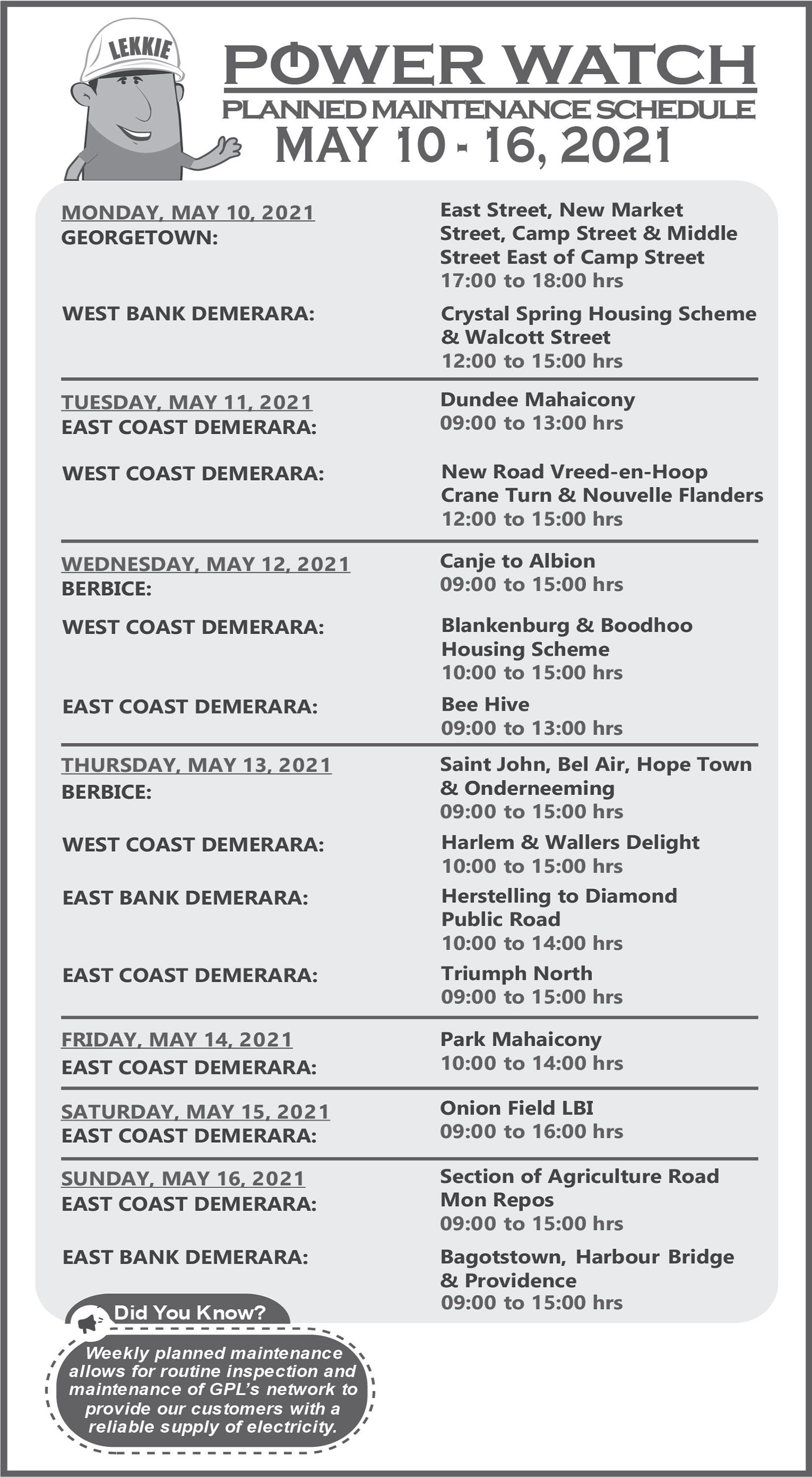
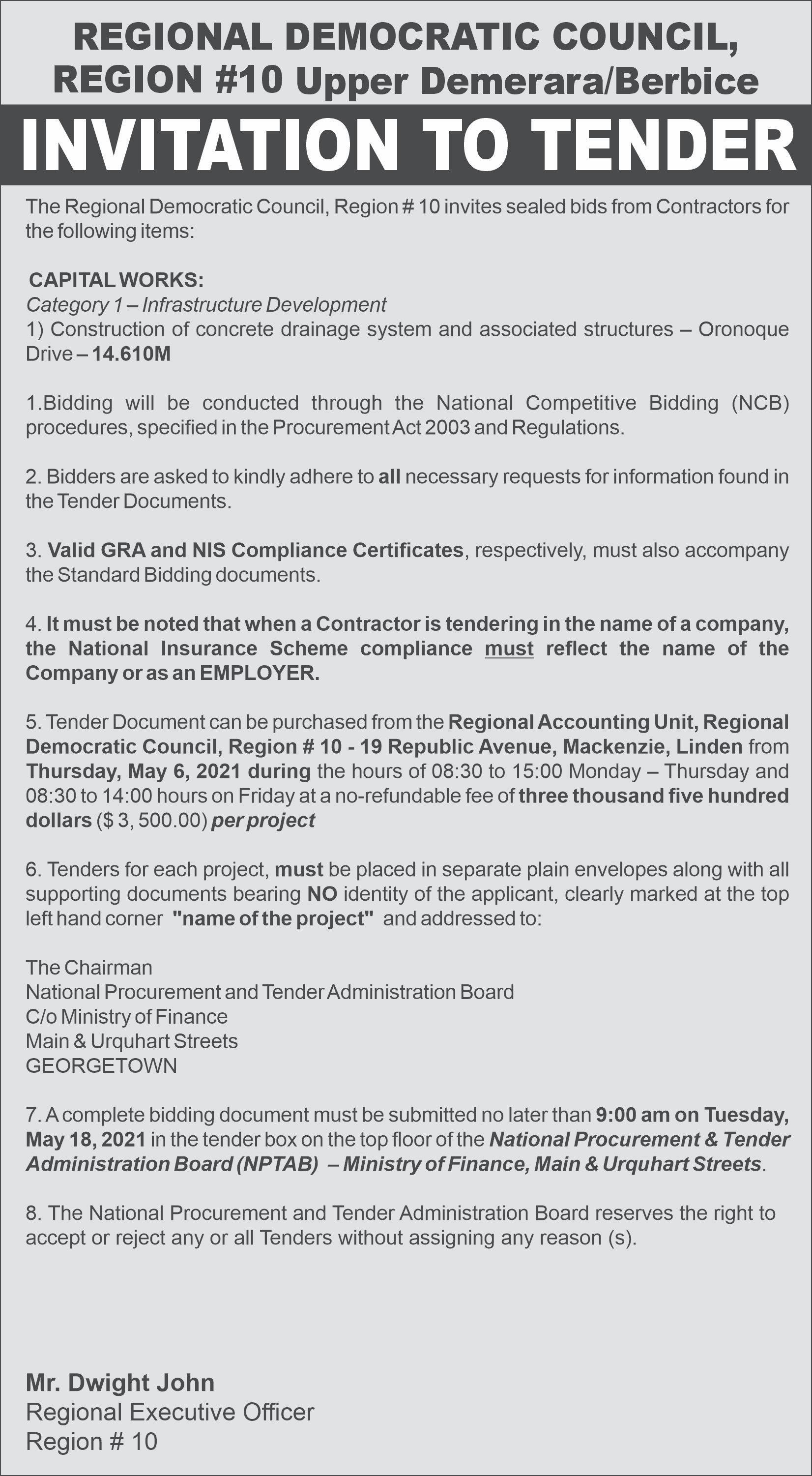
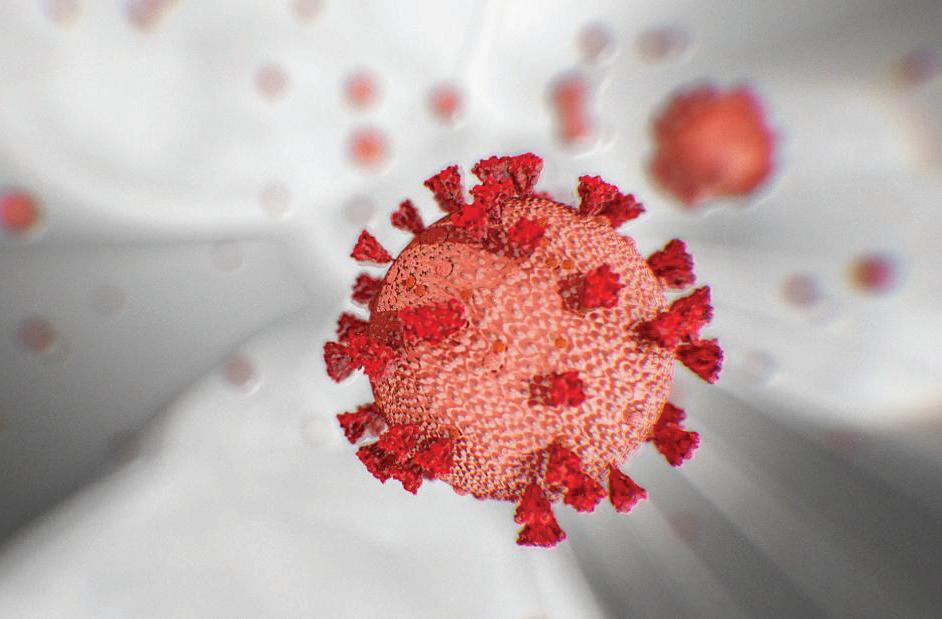
The science of COVID-19
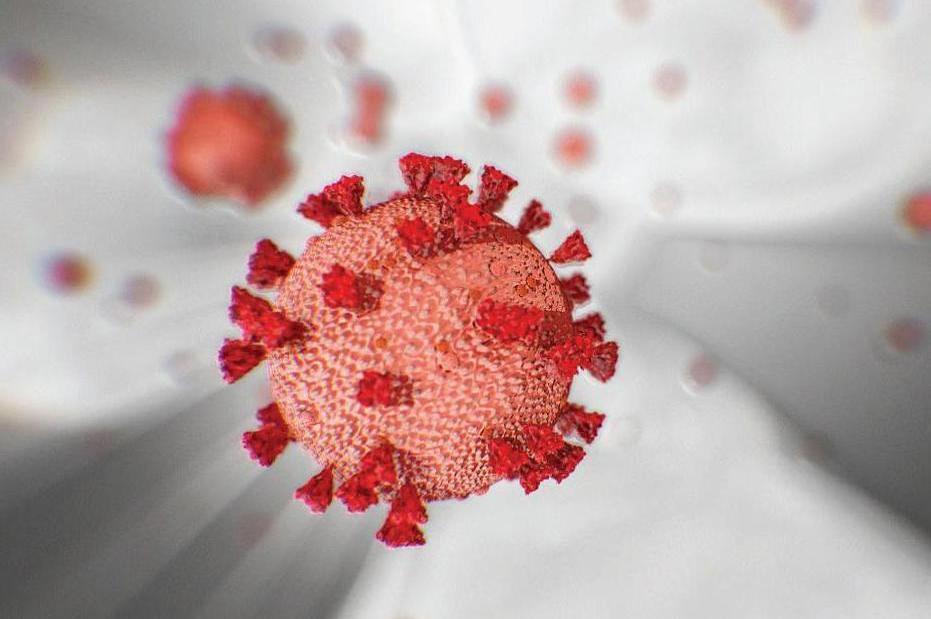
Dr Zulfikar Bux EmErgEncy mEDicinE SpEcialiSt, gEorgEtown puBlic HoSpital corporation aSSiStant profESSor of EmErgEncy mEDicinE, VanDErBilt mEDical cEntEr
Guyana, like the rest of the world, has begun vaccinating its population against COVID-19. Unfortunately, there are many rumours being spread, especially on social media, about the COVID-19 vaccines. This is creating too many vaccine skeptics, and is putting us all at risk of being stuck in the pandemic for longer than we should be. According to the World Health Organization (WHO), between 2010 and 2015, vaccines prevented an estimated 10 million deaths. Scientists have worked tirelessly to create safe and effective vaccines to protect us against COVID-19. Some persons, called “anti-vaxxers”, dedicate their entire lives to railing against vaccines, and are mostly behind the many myths that are being circulated about COVID-19 vaccines. Today, I will share some common myths being circulated about COVID-19 vaccines, so that you can be properly informed and help dispel these myths.
Myth: The side effects of the COVID-19 vaccine are dangerous
While the COVID-19 vaccine can have side effects, the vast majority are very short term and are not serious or dangerous. Some people experience pain where they were injected; body aches; headaches or fever lasting for a day or two. These are signs that the vaccine is working to stimulate your immune system. If you have allergies, especially severe ones that require you to be hospitalised, discuss the COVID-19 vaccine with your doctor, who can assess your risk and provide more information about if and how you can get vaccinated safely.
There has been recent evidence of rare blood clots in a small number of patients receiving the AstraZeneca vaccine. Experts have since advised that these are rare
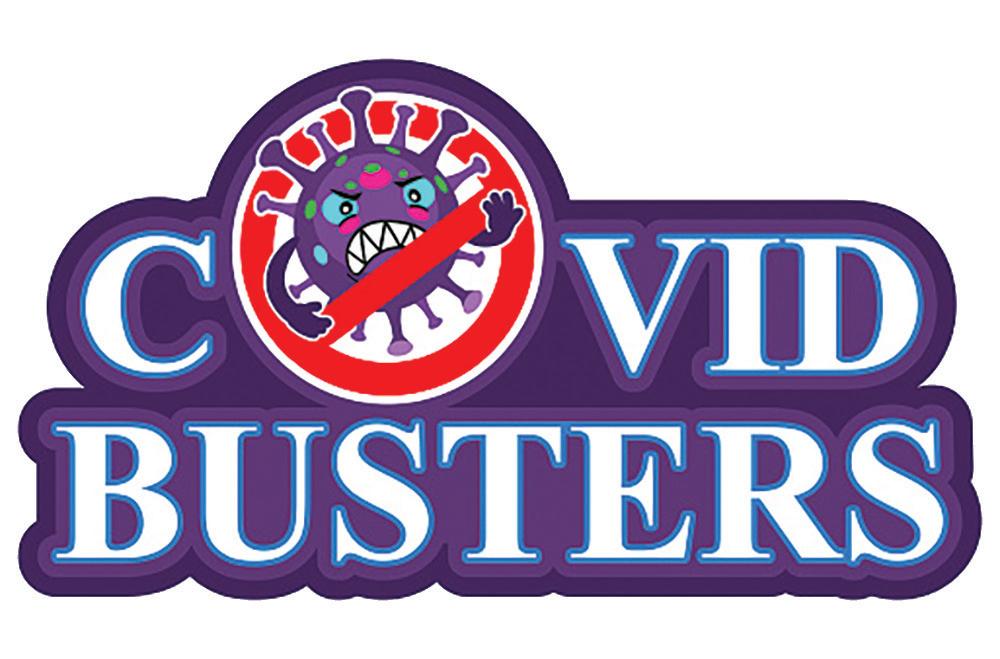
occurrences, and the benefits far outweigh the risks, and are advocating for its continued use. Thousands of Guyanese have already received this vaccine, and there has not been any reported case of blood clots associated with it.
Myth: The vaccine will alter my DNA
These vaccines were designed using the RNA and DNA of the virus to create similar structures in the vaccines.
These structures cannot
alter our DNA in any shape or form. When our body detects them after being vaccinated, it produces antibodies that can be stored and deployed to effectively combat the SarsCov2 virus in the event we get exposed to it. It does not directly interact with our DNA in any way.
Myth: You can get COVID-19 from the vaccines
The COVID-19 vaccines cannot give an individual COVID-19. Regardless of the type of vaccine, none contains the live SarsCov2 virus. Any side effect, such as headache or chills, is due to the immune response, and not an infection.
Myth: The vaccine contains a microchip
According to some, the vaccines were designed with a microchip inside, and will allow shadowy elites to track our every move. In reality, our mobile phones already complete that task effortlessly. There is no evidence that any of the COVID-19 vaccines contains a microchip, especially since each vaccine had undergone rigorous testing and analysis by many different international regulatory bodies.
Myth: COVID-19 vaccines can make you infertile
There is no evidence that the COVID-19 vaccines impact fertility. Similarly, there is no evidence that they will endanger future pregnancies. This rumour began because of a link between the spike protein that is coded by the mRNAbased vaccines and a protein called syncytin-1. Syncytin-1 is vital for the placenta to remain attached to the uterus during pregnancy. However, although the spike protein does share a few amino acids in common with syncytin-1, they are not even nearly similar enough to confuse the immune system and cause abortions.
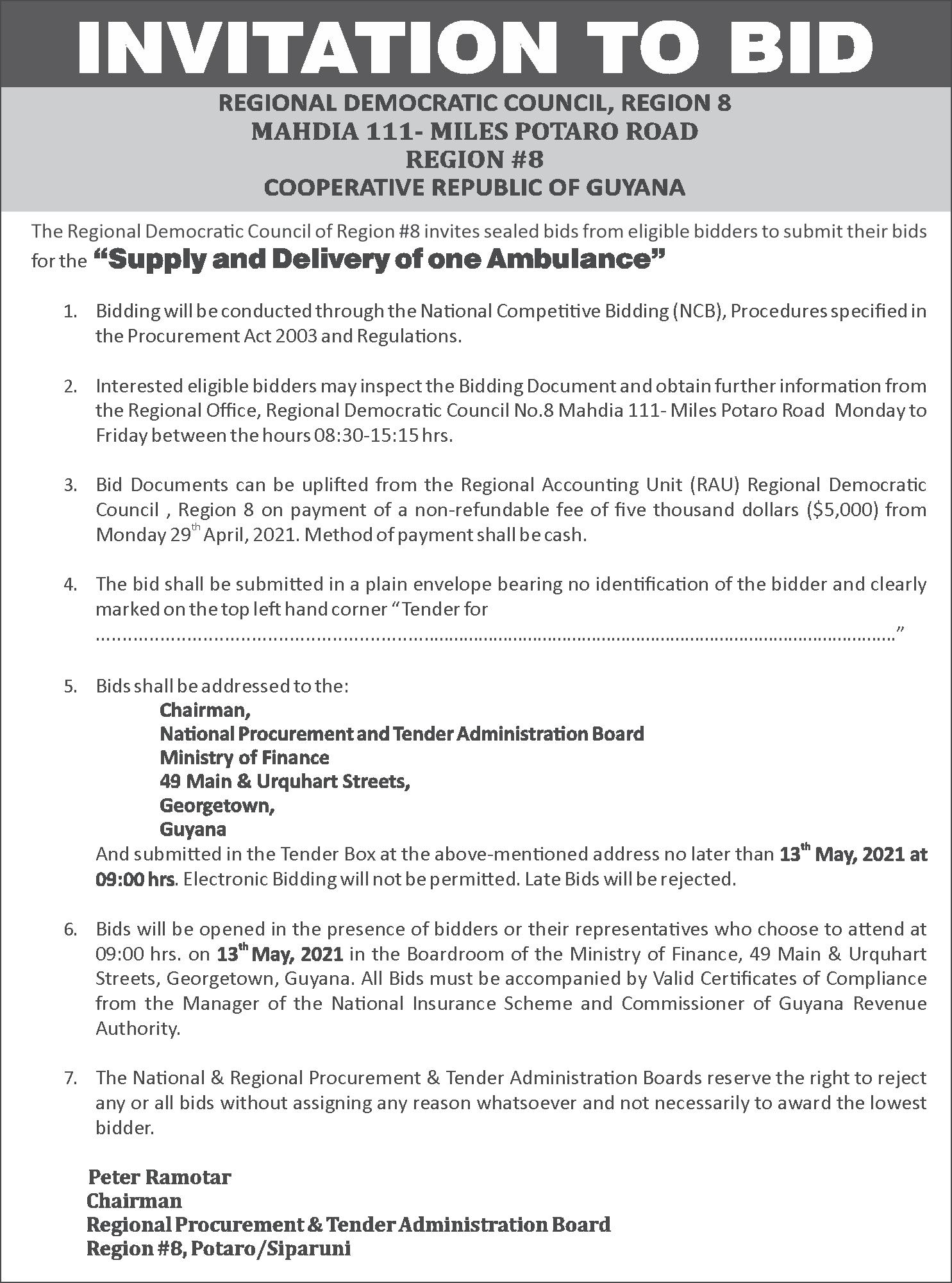
Myth: You should not take the vaccine if you’re breastfeeding
You and your breastfeeding baby need protection against COVID-19, like everyone else. You cannot get COVID-19, or give your baby COVID-19, by being vaccinated. The components of the vaccine are not known to harm breastfed infants. When you receive the vaccine, the small vaccine particles are used up by your muscle cells at the injection site, and thus are unlikely to get into breast milk. When a person gets vaccinated while breastfeeding, their immune system develops antibodies that protect against COVID-19. These antibodies can be passed through breast milk to the baby. Newborns of vaccinated mothers who breastfeed can benefit from these antibodies in the fight against COVID-19.
Myth: The COVID-19 vaccine was developed quickly, so it’s unsafe
Millions of doses of COVID-19 vaccine have been administered, and, thus far, it has been proven safe and effective. Although these vaccines were developed in record time, they would have gone through the same rigorous trials and authorisation process like every other vaccine, and would have met all safety standards. No step was skipped. The clinical trials and safety reviews actually took about the same amount of time as other vaccines. Scientists utilised existing technologies which saved most of the time that would have been needed to develop a vaccine from scratch. Also, this is the first time that there was such a worldwide focus and investment into the creation of a vaccine. Sufficient funding and collaboration meant that the process was also much more efficient.
Myth: I don’t need a vaccine, since COVID-19 survival rate is high
While the COVID-19 survival rate is high, the death rate is higher in the older population and those with other chronic illnesses. These people depend on others who are not as high risk to be vaccinated, so that the illness cannot spread to them. We all have loved ones that are in the high-risk group, and we need to look out for them, and get vaccinated. Also, while the death rate is not high, the long-term effects of COVID-19 are devastating for many who have been infected. It ranges from damage to the lungs, kidneys and liver, to numerous issues associated with damage to the nervous system. Those with nervous system damage tend to be fearful, depressed, experience unrelenting pains, and get nightmares for no obvious reason.
Myth: Only the high-risk should be vaccinated
Regardless of your risk, you can still contract the infection and spread it to others; so, it’s important you get vaccinated. Once the vaccine is widely available, it’s recommended that as many eligible adults as possible get the vaccine. In addition, doctors are finding long term complications in those who are not high risk and had COVID-19.
Myth: I can move around without a mask once I’m vaccinated
Masking, handwashing and physical distancing remain necessary until a sufficient number of people are immune to the virus and cannot spread it to others. The best protection we can offer each other right now is to continue to follow current guidelines and mask up. As more people get vaccinated, experts will have a better idea of how long natural and vaccine immunity lasts. In any case, most of the vaccines require you to get two doses, and to wait about a month for your body to develop immunity.
COVID-19 can go away only if we all get vaccinated. Otherwise, we are stuck in this pandemic, and many more lives will be lost and negatively affected. Experts are advising that around 80% of the population needs to be vaccinated before we can bring this pandemic under control. I therefore encourage you to spread the word on the real facts of COVID-19 vaccine and help debunk the myths. You will be saving lives by doing this.
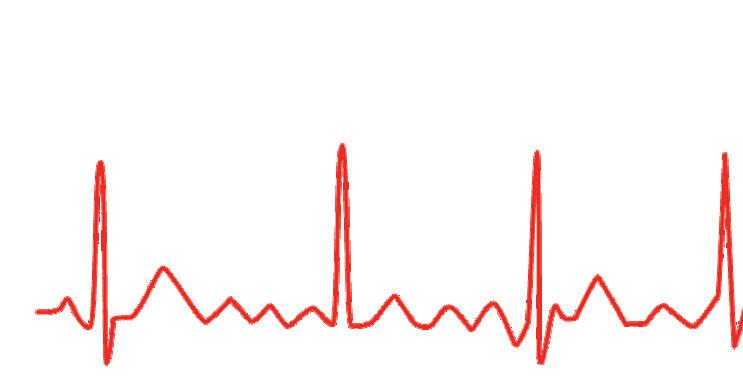

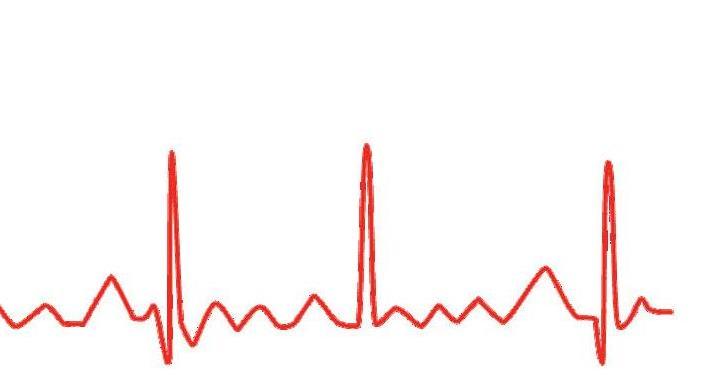

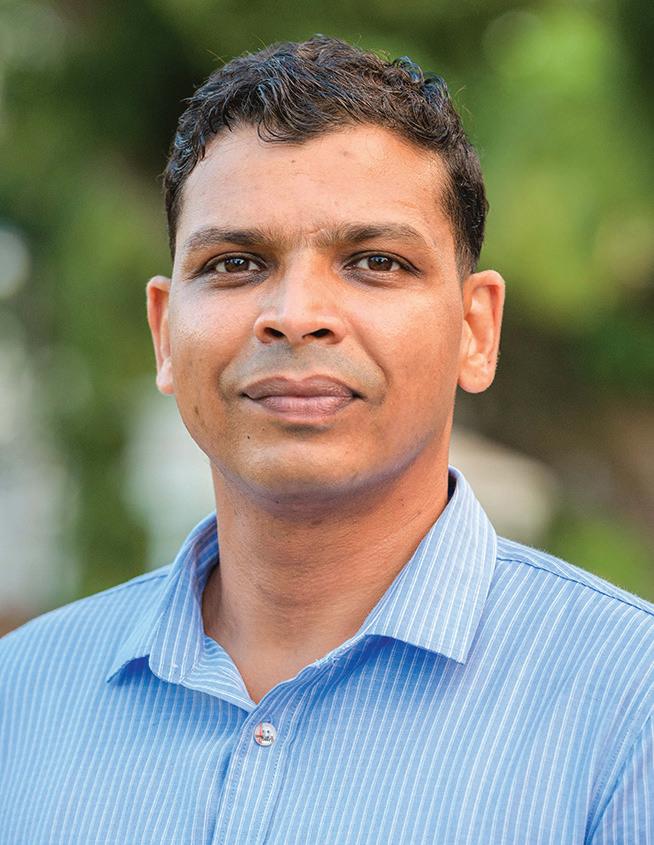
Fam medicine, endocrinology/diabetes
Natural menopause is the spontaneous, permanent ending of menstruation that is not caused by any medical treatment. Menopause is a normal, natural event. It’s defined as the final menstrual period, and is confirmed when a woman has not had her period for 12 consecutive months.
PHYSICAL CHANGES
Various physical changes can develop around the time of menopause. People may experience: * Excess fat around the abdomen * Weight gain * Changes in hair colour, texture, and volume * Breast reduction and tenderness * Urinary incontinence
However, the link between these changes and menopause is not always clear. Some may occur independently at the same time as the transition, and age and lifestyle can also play a role.
INCREASED RISK OF SOME
HEALTH CONDITIONS
After menopause, the risk of certain health issues appears to increase. Menopause does not cause these conditions, but the hormonal changes involved may play some role. * Osteoporosis: This is a long-term condition in which bone strength and density decrease. It is recommended that vitamin D supplements be taken and more calcium-rich foods be eaten to maintain bone strength. * Cardiovascular disease: The American Heart Association (AHA) notes that, while a decline in estrogen due to menopause may increase the risk of cardiovascular disease, taking hormone therapy will not reduce this risk. * Breast cancer: Some types of breast cancer are more likely to develop after menopause. Menopause does not cause breast cancer, but hormonal changes involved appear to increase the risk.
Skin changes can also occur around the time of menopause. for the changes is perimenopause or menopause by asking questions. They may also test hormone levels and perform other analyses of the blood and urine to rule out health issues. No test, however, can conclusively indicate that menopause has begun.
TREATMENT
Menopause is not a health problem, but a natural transition. However, it can involve unwanted physical and mental changes. Anyone who has concerns about these changes should seek medical advice: * Hormone therapy
This treatment helps balance the body’s hormone levels by providing supplemental estrogen and a synthetic version of the hormone progesterone. Hormone therapy comes in various forms, including skin patches and topical creams. It can help reduce the occurrence of hot flashes and other menopausal symptoms.
However, using it may increase the risk of developing certain diseases and health conditions. A person should not use hormone therapy if they have risk factors for the following health problems, or if they have a personal or family history of these issues: * Heart disease * Blood clots * High levels of triglycerides in the blood * gallbladder disease * Liver disease * Stroke * Breast cancer
DIAGNOSIS
Menopause is not an illness, but many people benefit from seeing their doctors when menstruation ends.
Health care providers can confirm whether the reason * Other treatments
A person may find that the following can also help relieve symptoms: * Over-the-counter gels and other products for vaginal dryness * Prescription pills, creams, and rings for vaginal dryness * Low-dose hormonal birth control pills for hot flashes, vaginal dryness, and mood changes * Low-dose antidepressants for hot flashes, even among people who do not have depression
LIFESTYLE TIPS
Tips for managing the challenges of menopause include: * Regular exercise * Practising relaxation and deep breathing exercises * Health diets that include plenty of fresh fruits, vegetables, and whole grains * Quitting smoking and avoiding second-hand smoke * limiting the intake of alcohol * Seeking counselling for anxiety, mood changes, and relationship concerns * Establishing good sleeping habits, and getting plenty of rest * Kegel exercises to strengthen the pelvic floor * Talking to friends and family about the experience of menopause * Exploring new ways of enjoying intimacy with a partner * Joining a club, volunteering, or taking up a new hobby.
KEEPING AN ACTIVE SEX LIFE
Menopause can reduce a person’s sex drive and lead to vaginal dryness, but it also removes the need for birth control. For some, this can make sex more enjoyable. Having sex often can increase vaginal blood flow and help keep the tissues healthy.
Some tips for maintaining sexual health and activity during menopause include: * Staying physically active * Avoiding tobacco products, recreational drugs, and alcohol * Taking the time to become aroused, which will improve lubrication * Kegel exercises to strengthen the pelvic floor * Not using any strong soaps around the vagina, as these can worsen irritation
Also, menopause symptoms lead some people to find satisfying forms of sex that do not involve the vagina as much or at all.
It is worth remembering that, while a woman cannot become pregnant once menopause starts, it is still important to use barrier protection during penetrative sex to protect against sexually transmitted infections. Often, sexual partners will be getting older, and may be experiencing menopause at the same time. They, too, may be feeling a drop in sex drive. Opening up about any concerns can help both partners feel better, and explore new forms of intimacy.
For many people, menopause is not the only transition that occurs during middle age. Changes in relationships and work or home life — such as children moving away — can also have a significant impact. When more than one of these changes occurs in a short period, it can feel overwhelming.
However, many people live active, healthy lives throughout menopause, and for many decades afterward, and midlife can often be the start of a new chapter.
HEALTH TIPS
MENOPAUSE - PART 2
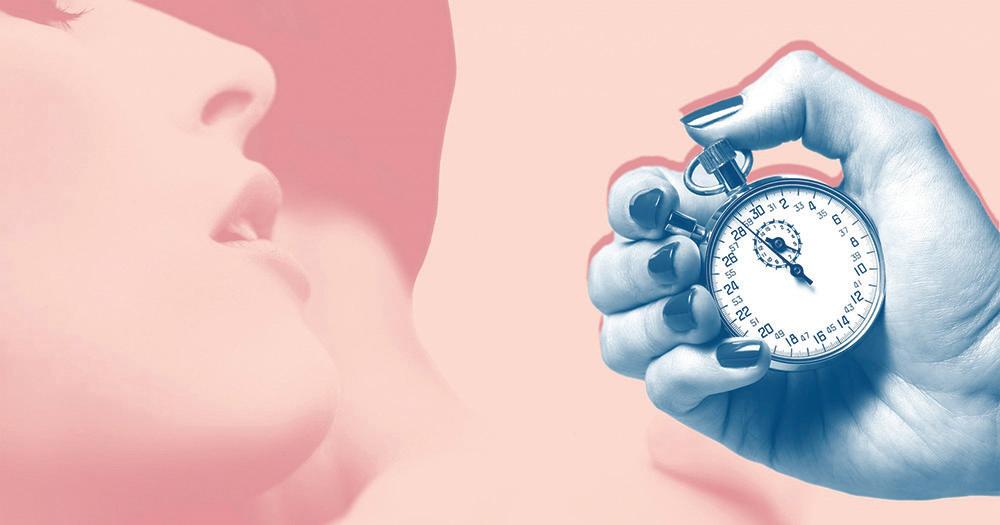
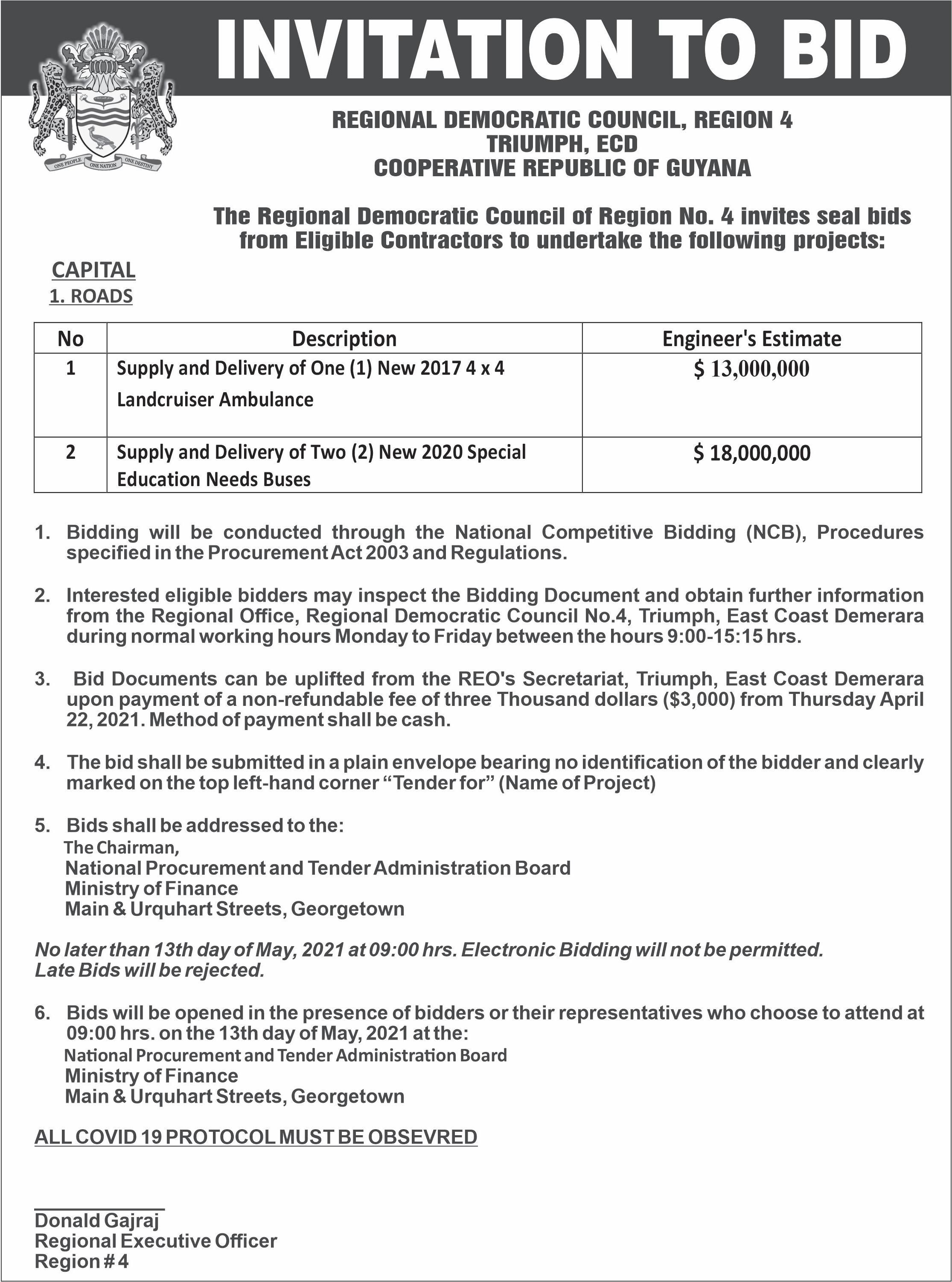
SUNDAY, MAY 9, 2021 | GUYANATIMESGY.COM North West Secondary School to be upgraded with $166M expansion
…CVQ training to be offered at new facility
With the signing of a US$832,883 contract, the Practical Instruction Department of the North West Secondary will be expanded to offer Caribbean Vocational Qualification (CVQ) training.
The expansion will cater for level one and two training in five occupational areas, namely: commercial food preparation, motor vehicle repairs, electrical installation; furniture making or carpentry; and joinery and home economics. The CVQ is recognised in the Caribbean region thereby making students also marketable within Caricom.
The contract for this expansion was awarded to International Import and Supplies while the consultancy firm is Caribbean Engineering and Management Consultants Incorporated.
Funding was made possible through the Caribbean Development Bank (CDB) and the Government of Guyana through the Guyana Skills Development and Employability Project (GSDEP).
Education Minister Priya Manickchand said at the signing ceremony that the Ministry plans to develop and enhance what is offered at the Technical Vocational level. She said that to do this, the right facilities need to be available. This project will enable the residents of the North West District the opportunity to become more employable and to develop themselves through the usage of the facility.
“This certificate will be recognised across the region. That’s what we are going to be able to offer to our students in the North West District – something they couldn’t get before. This project is expected to complete in 10 months so, before the next year that students come into the system, we’re going to be able to offer these,” she outlined.
Minister Manickchand said such programmes are important in communities where there are students who have a lower interest in obtaining the Caribbean Secondary Education Certificate (CSEC). She said that the Ministry is trying to ensure that students can leave school with qualifications to take up a trade.
“Particularly in these communities, these programmes are very important. We’re trying right now in the Ministry of Education to match the communities that we see the least interest in writing CSEC exams with how we can make sure you leave school with qualifications that would make you employable. These are some of the gaps we’re trying to plug.”
With this being another contract signed between the Ministry and a contractor, Manickchand reiterated Government’s position on contractors failing to complete projects according to contractual obligations.
“It is not because we like to quarrel that we ask for quality work delivered in a timely manner, it is because if you don’t give us that, you are robbing children, students and people of what we promise them we will be able to deliver,” the Education Minister noted.
Projects currently lagging in the Ministry include the St Rose’s High School, the Good Hope Secondary School and the Yarrowkabra Secondary School projects. She reiterated that if contractors cannot honour their obligations, their contracts will be terminated.
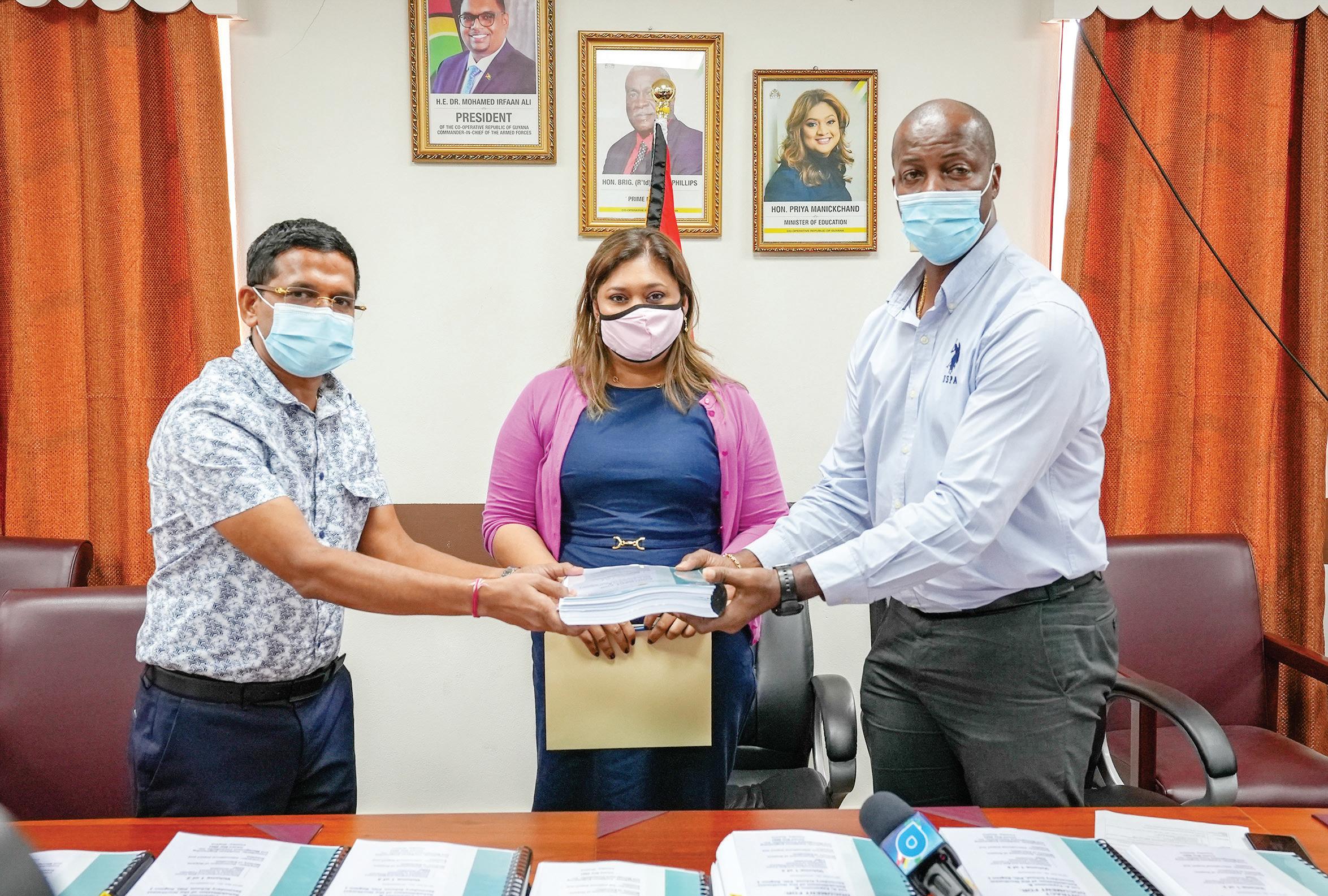
Education Minister Priya Manickchand, Permanent Secretary Alfred King and the contractor posing with a signed copy of the contract

4 months later
Man remanded for murder of teen gold miner
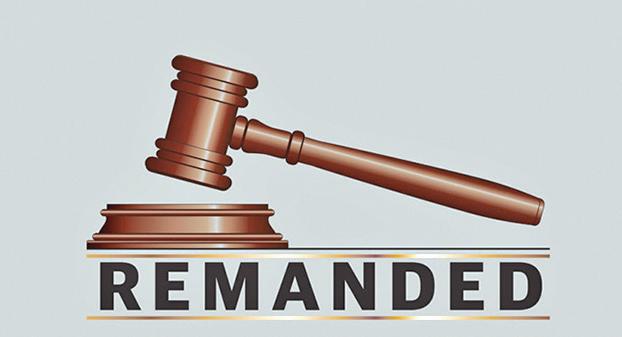
Jason Howard was charged for the Christmas Eve day murder of 19-year-old Neville Moonsammy Jr.
Howard was arraigned before Magistrate Dylon Bess at the Matthews Ridge Magistrate’s Court.
He was not required to plead to the indictable charge and was remanded to prison. Reports in December 2020 were that on December 24, 2020, 19-year-old Neville Moonsammy was beaten and stabbed to death.
Police had said that Moonsammy was in the company of his father and a mutual friend when he was killed. According to Police, the dead man’s father and his friend were also attacked.
Reports are that the trio was imbibing at a shop located in the Four Miles area and at about 20:00h, the youngster’s father became intoxicated and they all decided to go home.
According to the dead man’s father, they were talking to two females along the Four Miles Access Road when his son, who had been standing a short distance away from them, ran towards him holding his bleeding left hand.
Within minutes, a number of men attacked Moonsammy and stabbed him to his face, while another wounded his friend along his forehead and nose.
The suspects made good their escape and the injured trio ventured to the Port Kaituma Community Hospital but by the time they arrived, the teenager was already dead.
The case will continue on August 6.
SUNDAY, MAY 9, 2021 | GUYANATIMESGY.COM Wales backlands' residents appeal for urgent assistance to save livelihood, road
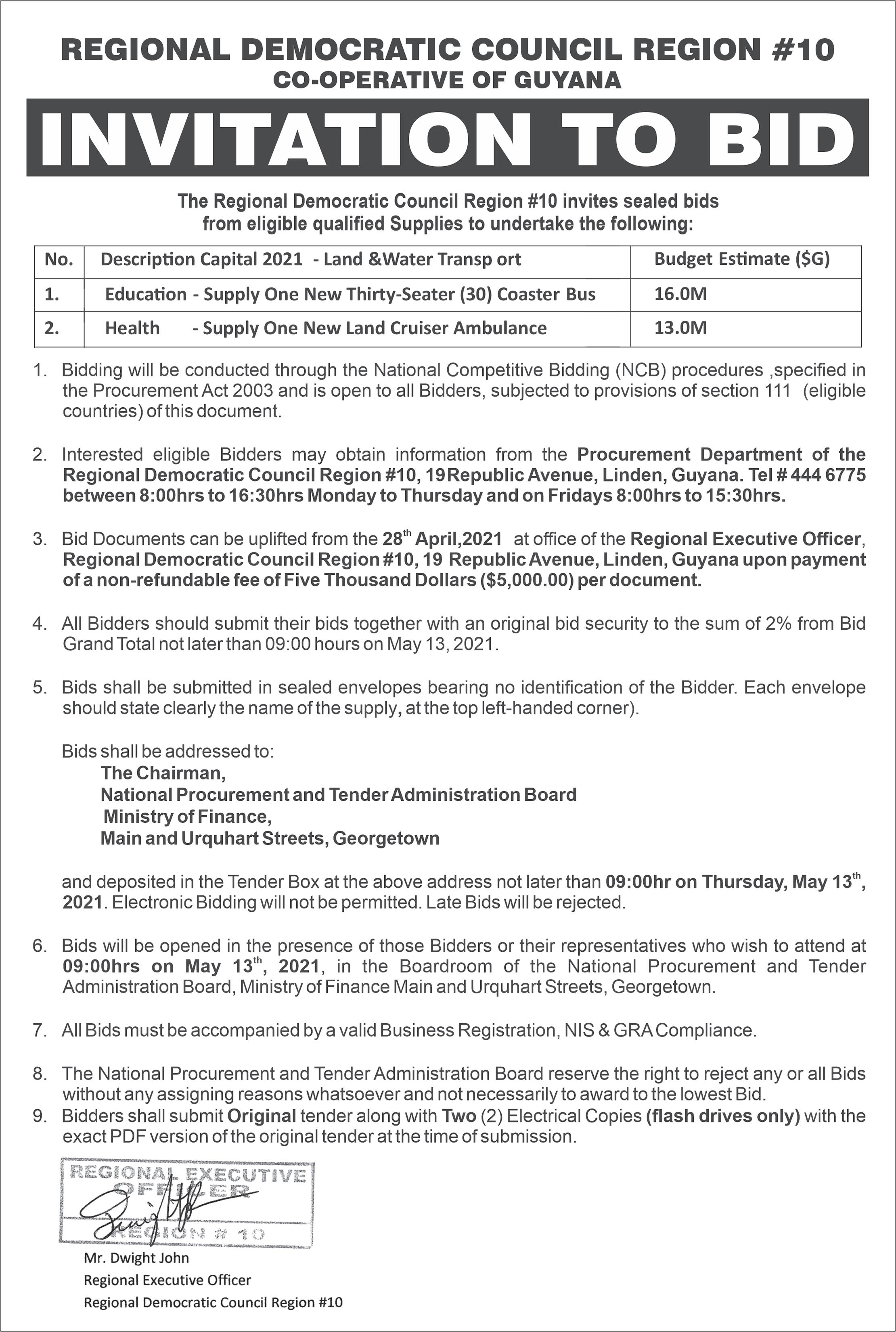
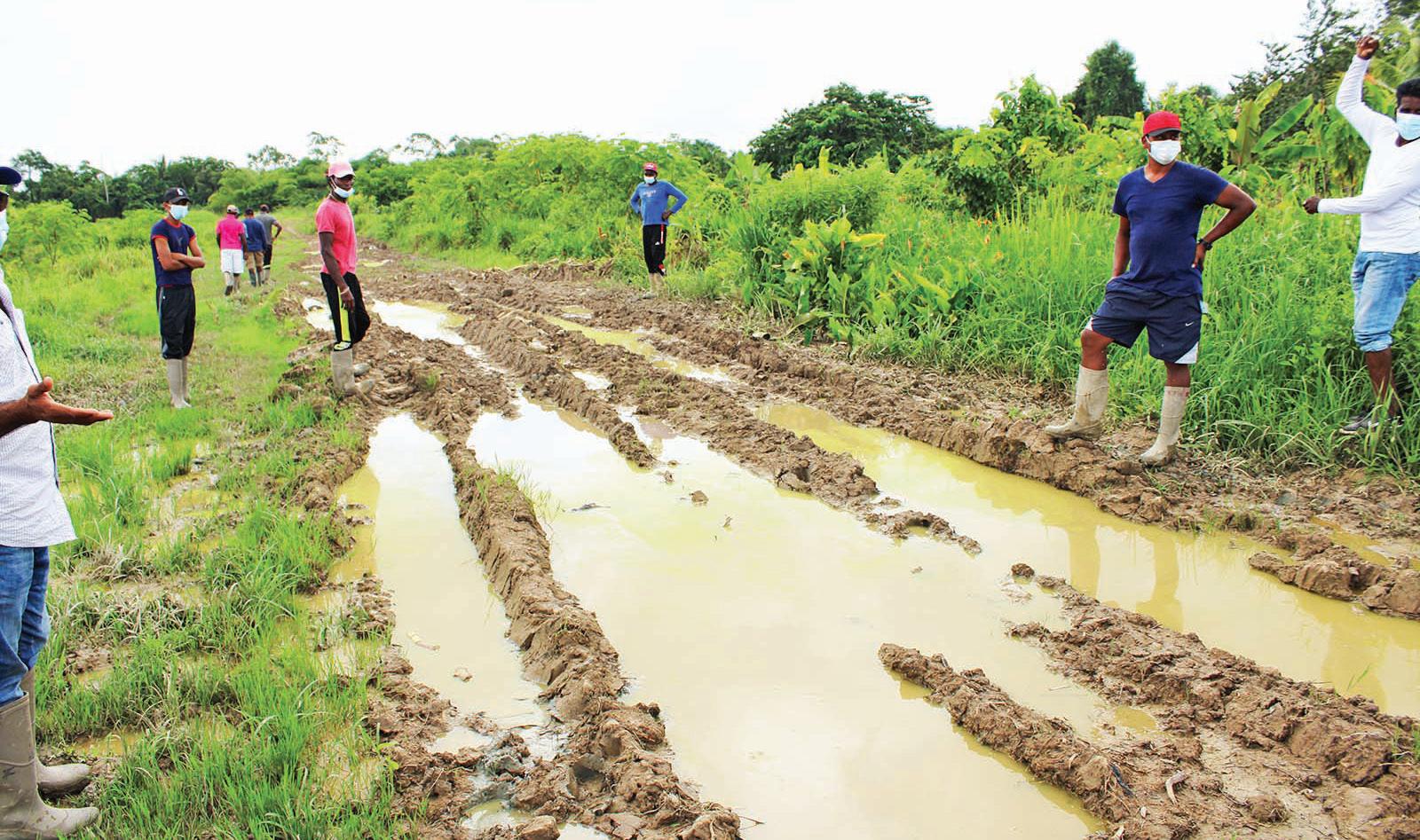
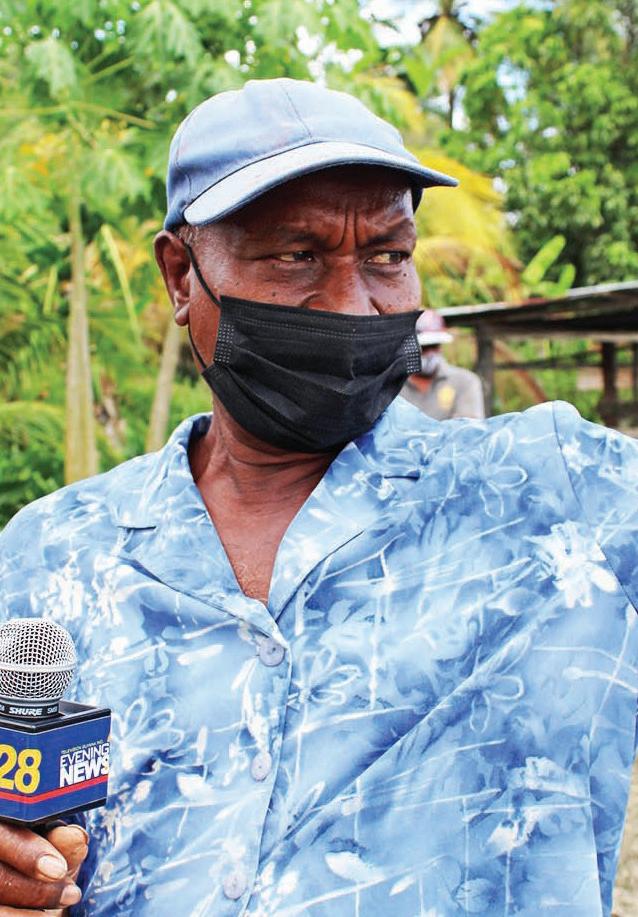
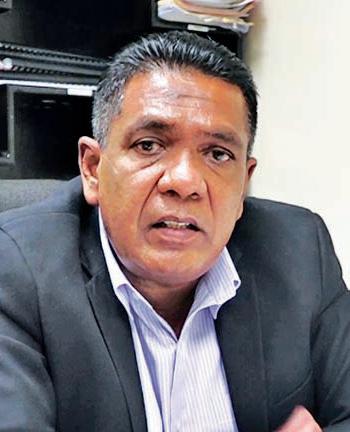
…Govt to balance investment already made by developer vs occupancy needs of local farmers …Agri Minister commits to addressing issues
Agriculture Minister Mustapha
By Lakhram Bhagirat
The residents of Catherina Sophia – La Harmony area, Wales Backlands, are seeking the urgent intervention of the Agriculture and Public Works Ministries to come to their rescue and provide them with better infrastructure to sustain their livelihoods.
The Region Three (Essequibo Islands-West Demerara) community has just about 170 residents who were mostly employed with the Wales Estate but lost their jobs when the
previous Administration (APNU/AFC) closed it down. They used the monies from their severance packages to invest in farming and livestock rearing.
They began using the
abandoned cane fields to rear their livestock and together have accumulated over 500 heads of cattle.
However, a developer approached the villagers and informed them that he was leased some 2000 acres of land to plant coconuts under the APNU/ AFC Administration. The man then occupied the plot where the residents were using to raise their livestock so they decided to move to another plot.
About a month ago, the man began moving the residents’ cattle from the other plot, informing them that he received the go-ahead from the authorities to develop another block with coconut.
“He commenced his operation and it had residents that had cattle in the area and he kept moving the cattle down to the back. However, after he finished that plot, he continued on to another area and that area have about 300 heads of cattle and it have no other place for the cattle to be shifted,” resident Sasenarine Khanai told Guyana Times.
During a visit to the re-
mote community, Guyana Times was informed that the residents have reached out to several Government agencies including the National Industrial and Commercial Investments Limited (NICIL), Guyana Livestock Development Authority (GLDA), Ministry of Agriculture and other agencies requesting urgent assistance to save their cattle and preserve their live-
lihoods.
“The only response we get was from NICIL which stated that they sent a document saying they are in no status at the moment to allocate lands in the area. A group of 30 persons made a visit to the Ministry of Agriculture to meet the Minister, however, that was not successful.”
The man related that they met with a member of staff at the Ministry (name given) and he advised them to erect a fence to prevent the cattle from going into the area that the “developer” had already cultivated. “So, this meeting was done about three weeks ago at Ministry of Agriculture on Regent Street. After that, we came back and erected the fence and everything was normal.
“However, the guy came in about a week ago and said he got a go-ahead from the Minister Secretary to commence the operations. He removed the fence and took another plot of land which is presently affecting the residents here with the amount of cattle they have,” Khanai related.
The man has been living in the area for over 10 years now and also rears cattle. Currently, he has over 20 heads of cattle which is also growing. He is calling for the Agriculture Minister to make an urgent intervention so that they can find somewhere to place their livestock.
“We are hoping to get the authorities - the Minister of Agriculture to make an intervention into this matter. We are hoping to get the President, Dr Mohamed Irfaan Ali, to make an intervention or even send a representative here to meet with the residents and hear their concerns. This is our only form of livelihood here,” the worried man related.
Roy Narine has been living in Catherina Sophia for 60 years now and is also a former worker of the Wales Estate.
Minister within the Public Works Ministry, Deodat Indar A section of the destroyed road
TURN TO PAGE 34
Resident: Roy Narine Teacher Reasha Teyjnarie
Sasenarine Khanai
Clinton Day
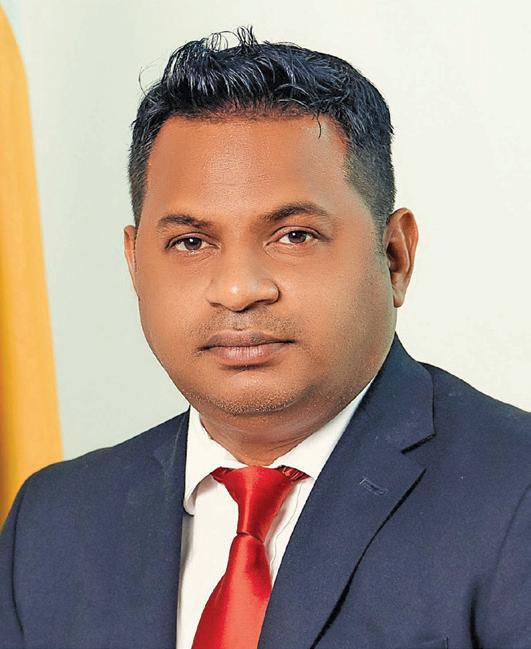
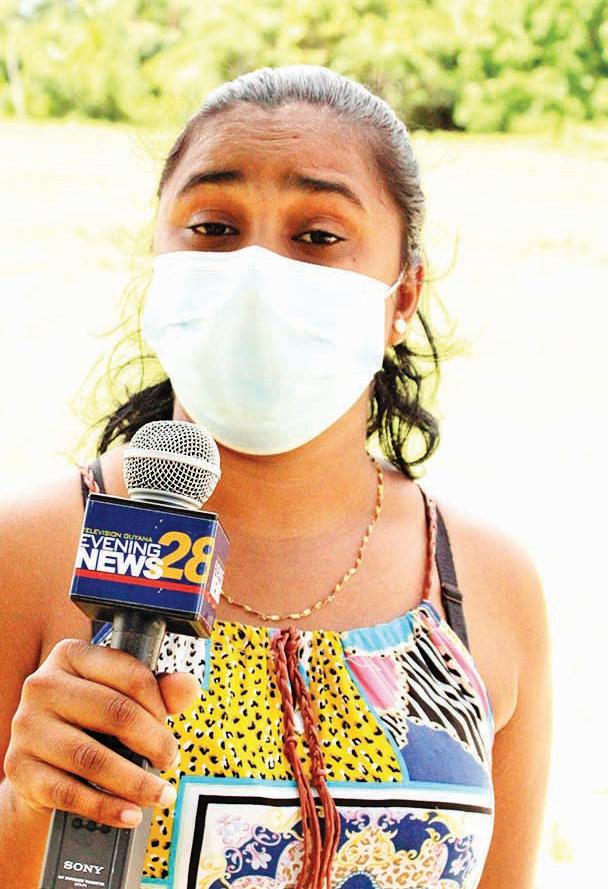
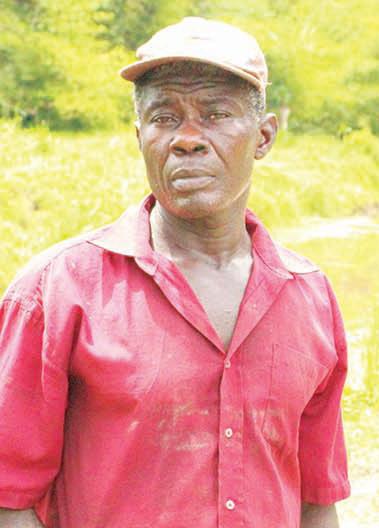
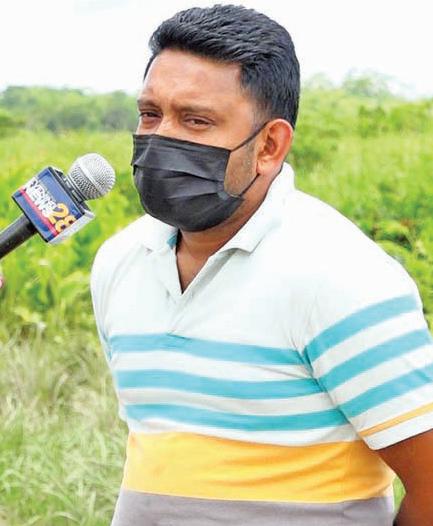
SUNDAY, MAY 9, 2021 | GUYANATIMESGY.COM Dismiss APNU/AFC 2nd election petition appeal – AG tells court
Attorney General and Minister of Legal Affairs, Anil Nandlall has moved to the court to strike out an appeal filed by A Partnership for National Unity/Alliance For Change (APNU/AFC) against the dismissal of election petition number 99 of 2020, which was thrown out of the High Court back in January due to late service.
According to Nandlall’s submissions, the Court of Appeal lacks the jurisdiction to hear APNU/AFC’s appeal for its dismissed petition. In January, acting Chief Justice Roxane George had dismissed election petition number 99 of 2020 due to its late service.
APNU/AFC subsequently appealed. However, Nandlall contended in his submissions that Article 163 of the Constitution of Guyana does not allow appeals of decisions made on the basis of technicalities.
“Article 163 (3) (a) pro-
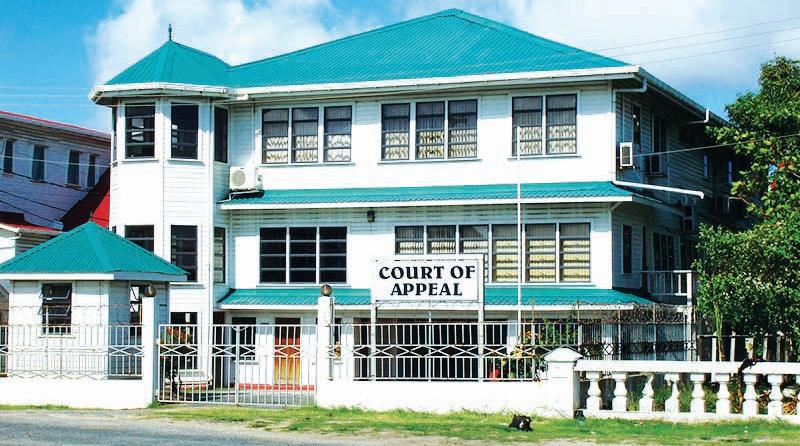
The Court of Appeal
vides for an appeal to be filed against a decision of a Judge of the High Court granting or refusing leave to institute proceedings for the determination of any question referred to in Article 163 (1) of the Constitution. It is clear that Article 163 (3) (a) is not relevant to this appeal,” the Senior Counsel submitted.
“Article 163 (3) (b), however, is of fundamental importance. It provides for a right of appeal to the Court of Appeal “from the determination of the High Court of any such question, or against any order of the High Court made in consequence of such determination,” the submission added.
According to the AG, the Court of Appeal would have had this jurisdiction had the election petition been heard and a decision made based on Article 163. In this respect, he urged that the appeal, which he called unlawful and unconstitutional, be dismissed.
“It is must be excruciatingly clear by now that in Petition 99 of 2020, the learned Chief Justice did not determine any of the questions provided for and contemplated by Article 163 (1) (a), (1) (b) (i), (ii), (iii), (iv) and Article 163 (c) and (d) of the Constitution.”
“In the circumstances, it is respectfully submitted that this Honourable Court lacks jurisdiction to entertain the instant appeal from the decision dismissing Election Petition No 99 of 2020, for procedural impropriety, as no such jurisdiction is provided for under the Constitution or any other law,” Nandlall submitted to the court.
The petition
Petition 99 of 2020, filed on September 15, 2020, by APNU/AFC agents Monica Thomas and Brennan Nurse, had asked the court to order the Chairman of the Guyana Elections Commission (GECOM), Retired Justice Claudette Singh, to declare David Granger as President.
TURN TO PAGE 36
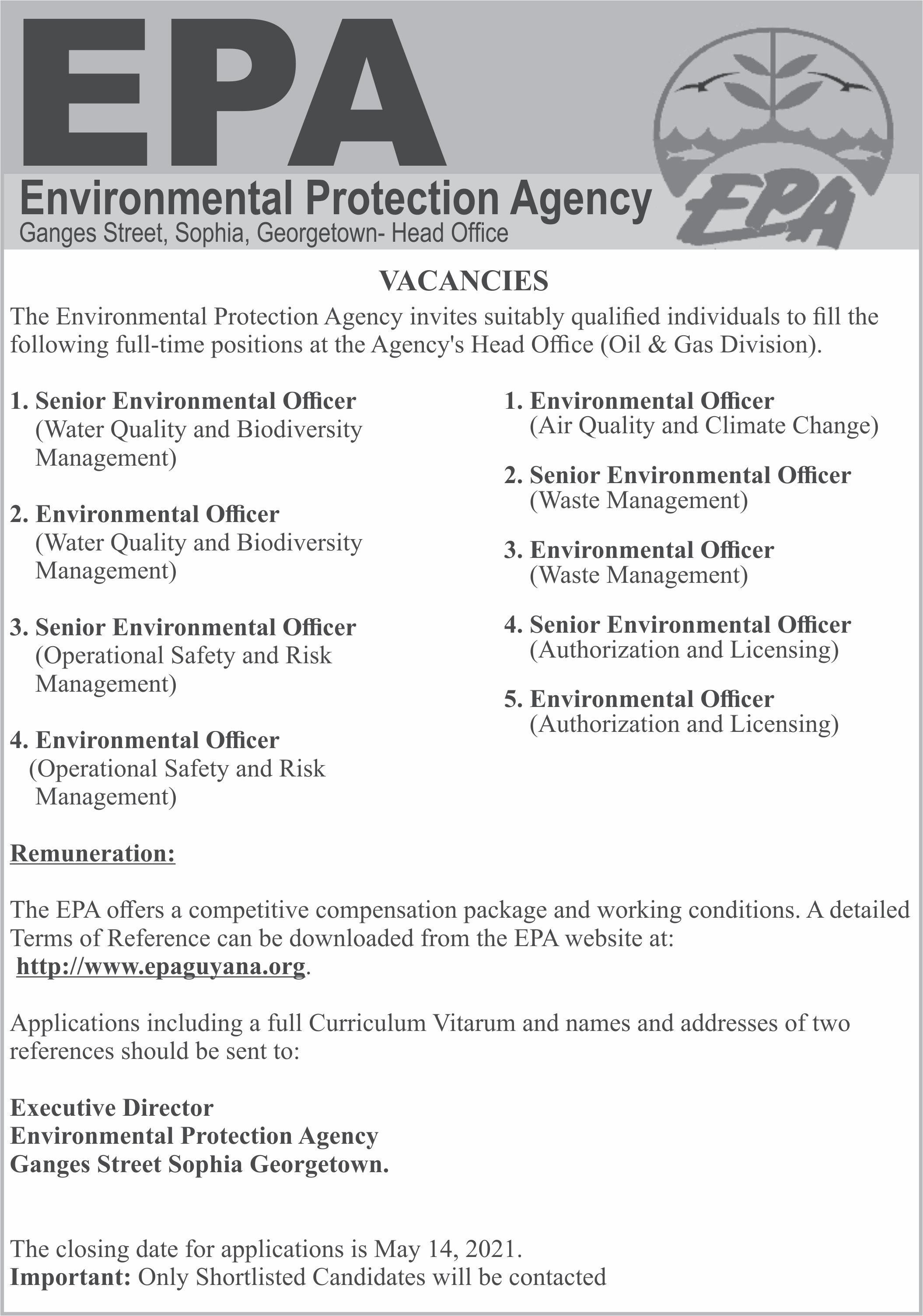
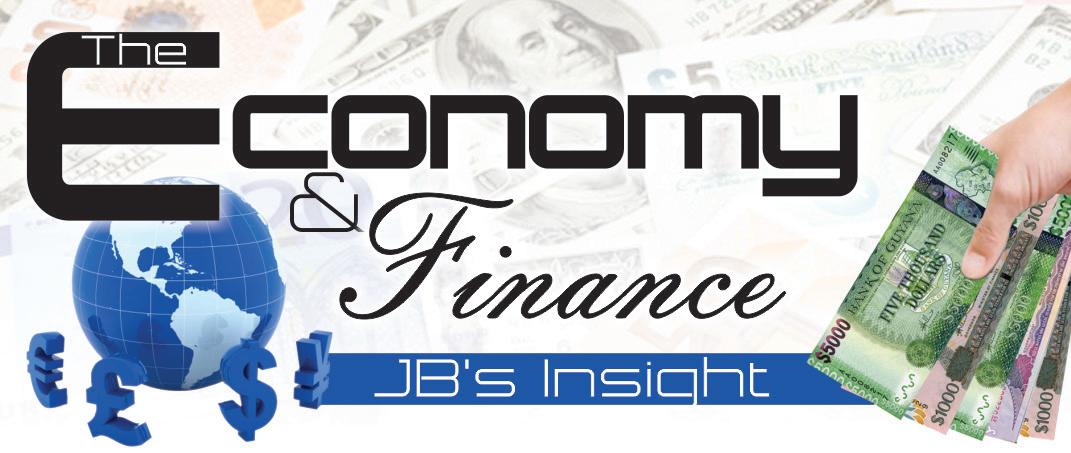
A contextual financial analysis of the gas-toshore project (Part 8)
Concluding Remarks
Guyana is well positioned to lead a massive regional integration drive, given the development trajectory the country is embarking upon. This is the important context within which the analyses conducted herein is premised regarding the gas-to-shore project. Proponents who are of the view that the project is not economically and financially feasible ignored this fundamental context and many other important variables.
A number of scenarios and estimates were used in the analysis to determine whether the project is deemed meritorious in terms of its economic viability. To this end, the findings of the analysis indicate that the project can achieve its objective of reducing energy cost by 50% or more, while remaining a profitable venture, and the initial investment cost can be recovered within a period of four to seven years.
Moreover, the long-term economic viability with the location of the project in mind is based on the fact that, evidently, the development of the country is moving towards the South, with the intention of eventually building a secondary city on the Linden Highway. The proposed location of the project is earmarked to be an industrialised zone, given the access to thousands of acres of land that can be transformed into massive agricultural activities. The location on the West Bank is also within reasonable proximity, adjacent to the East Bank corridor – where a number of infrastructural developments as well as commercial and industrial activities will take place. As such, the gas-to-shore project will certainly yield long term economic benefits for the entire country, and is deemed economically sensible to be built at the exact proposed location for these reasons. This can result in efficient and cost-effective distribution channels, given the direction towards which geographic development of the country is moving.
Guyana’s development has been stymied for more than ten years, owing to its peculiar development challenges as described in this paper. The time has now come for all of Guyana and its people to embrace the development path the country is embarking upon, and support the policymakers to achieve these goals. As was shown in these contextual analyses, the development projects being pursued were not conceptualised haphazardly or through an overnight exercise. Logically, the country’s development can move now only in one direction, and that is more inland and towards the south.
For too long, Guyana has been an underdeveloped country, and it would be good for everyone to embrace this strategy and contribute their skills and expertise in finding solutions to advance this very ambitious, relevant, and much needed development path for the country. The development strategy of the country by the current regime was developed over 25 years ago, and it remains relevant today simply because the geographic landscape of Guyana has not changed and the country’s development was stymied for many years.
About the Author:
J.C. Bhagwandin is the Chief Financial Advisor/ Analyst of JB Consultancy & Associates, and a lecturer at Texila American University. The views expressed are exclusively his own, and do not necessarily represent those of this newspaper or the institutions he represents. For comments, send to jbbankingadvice@gmail.com.

